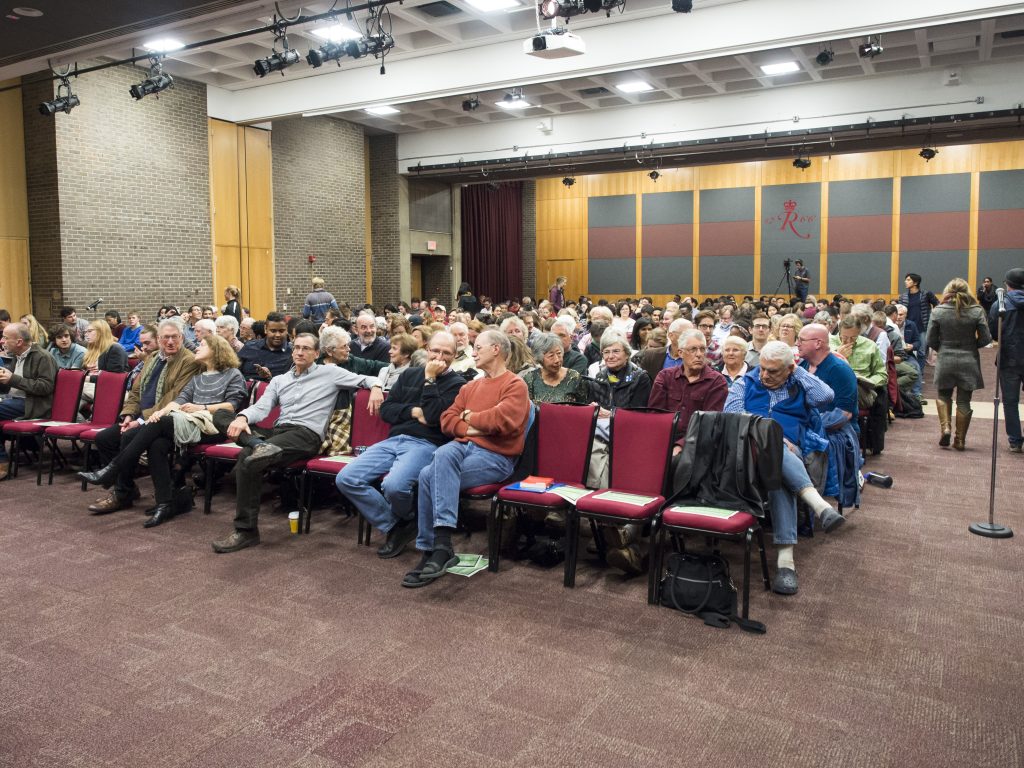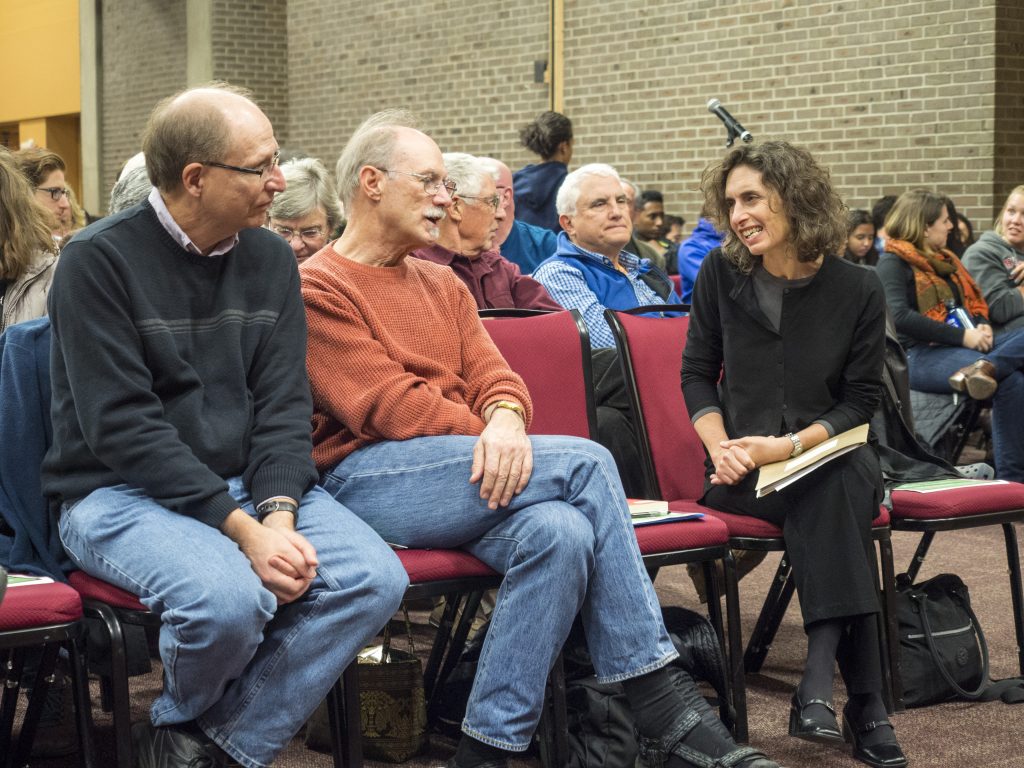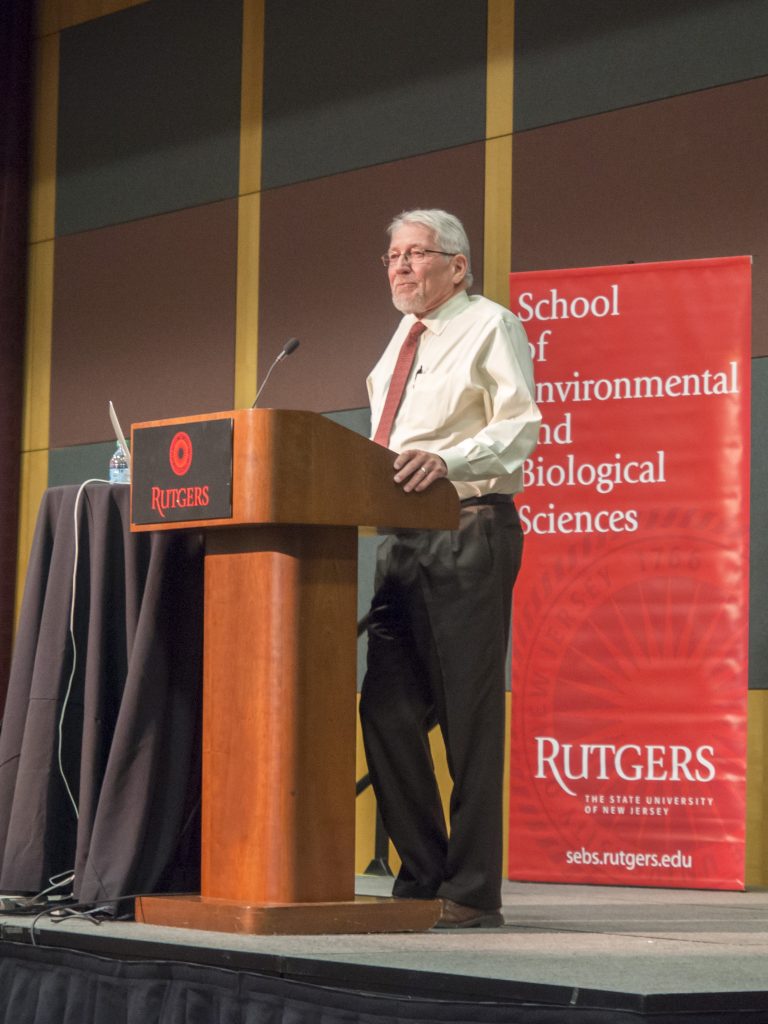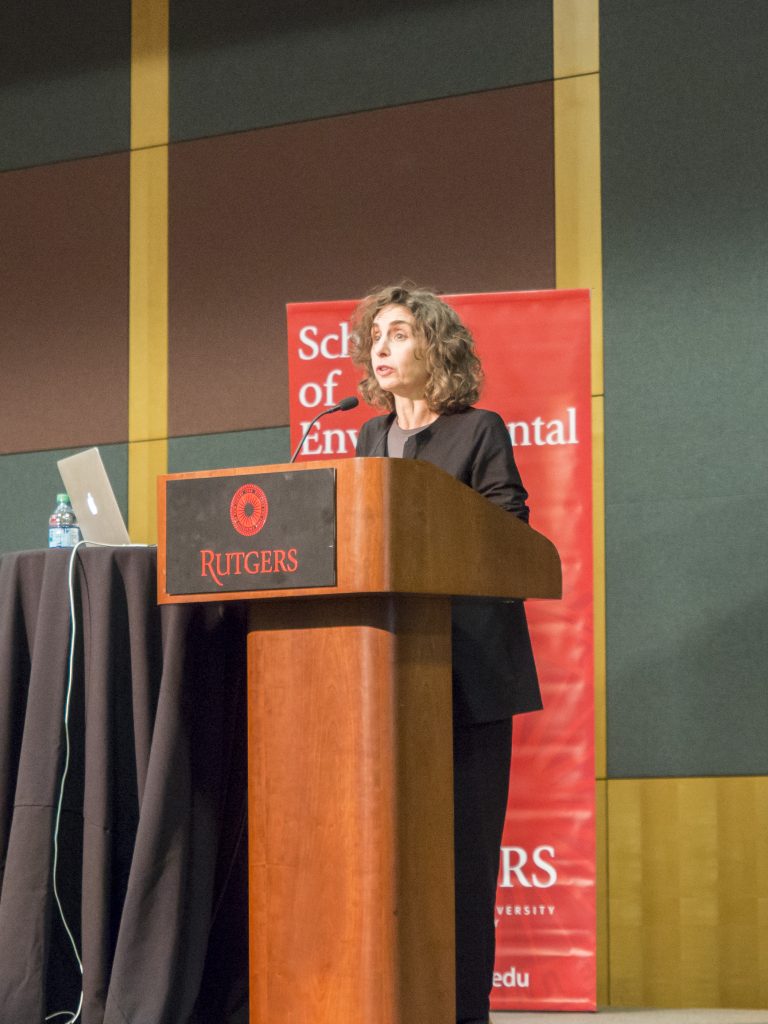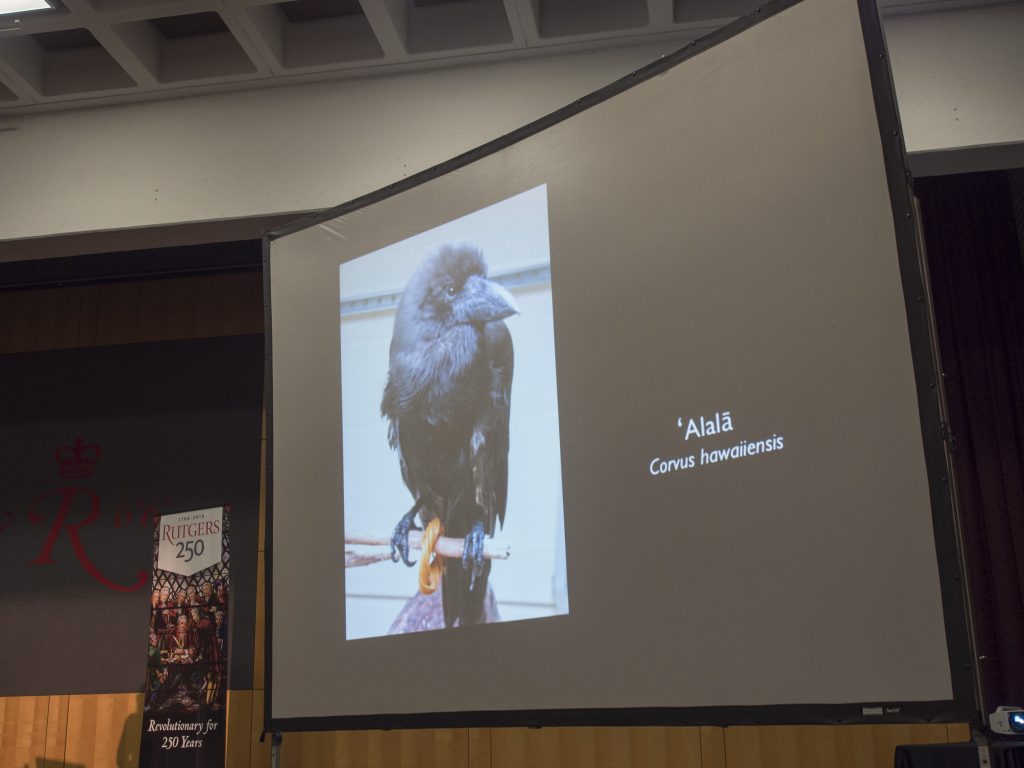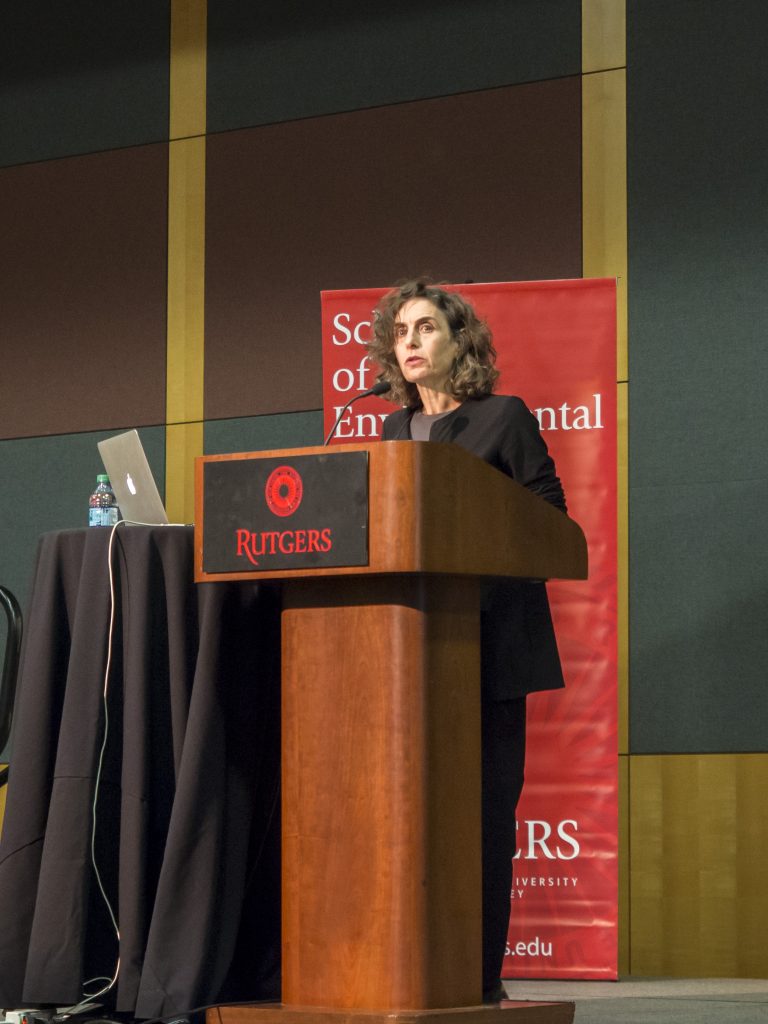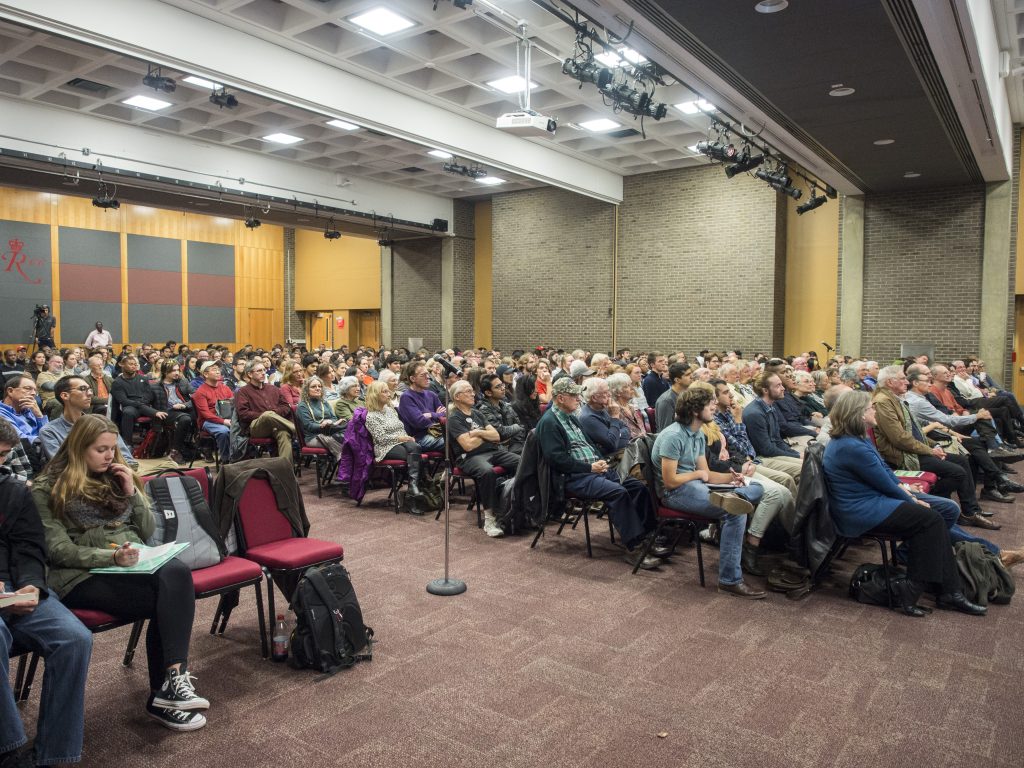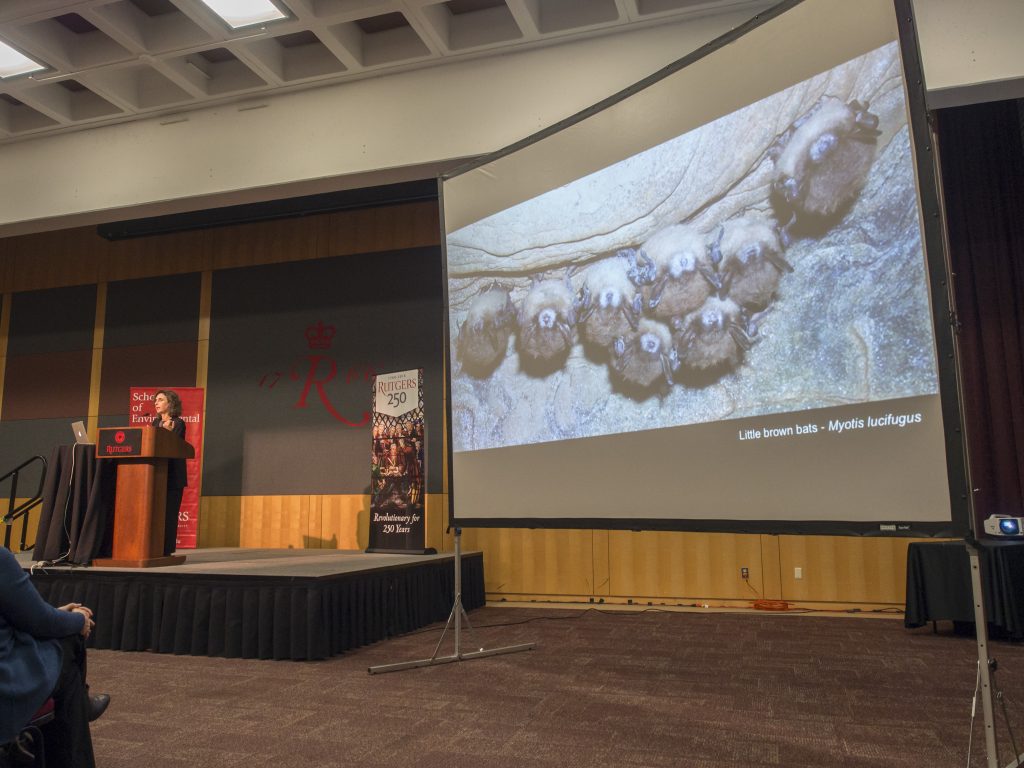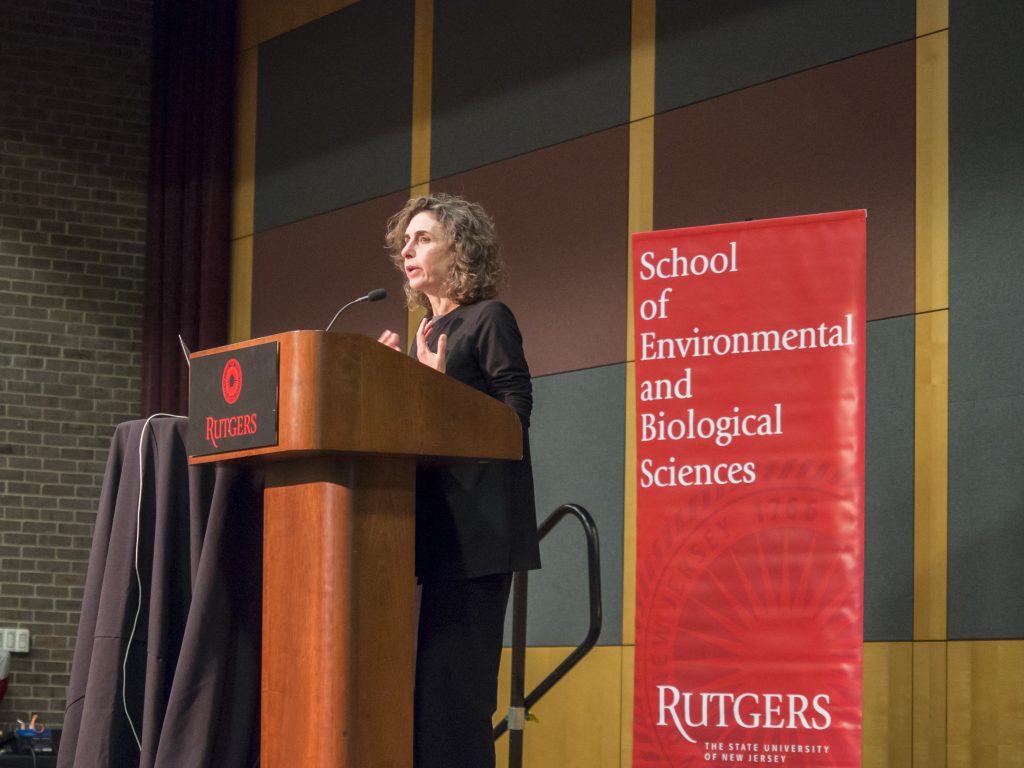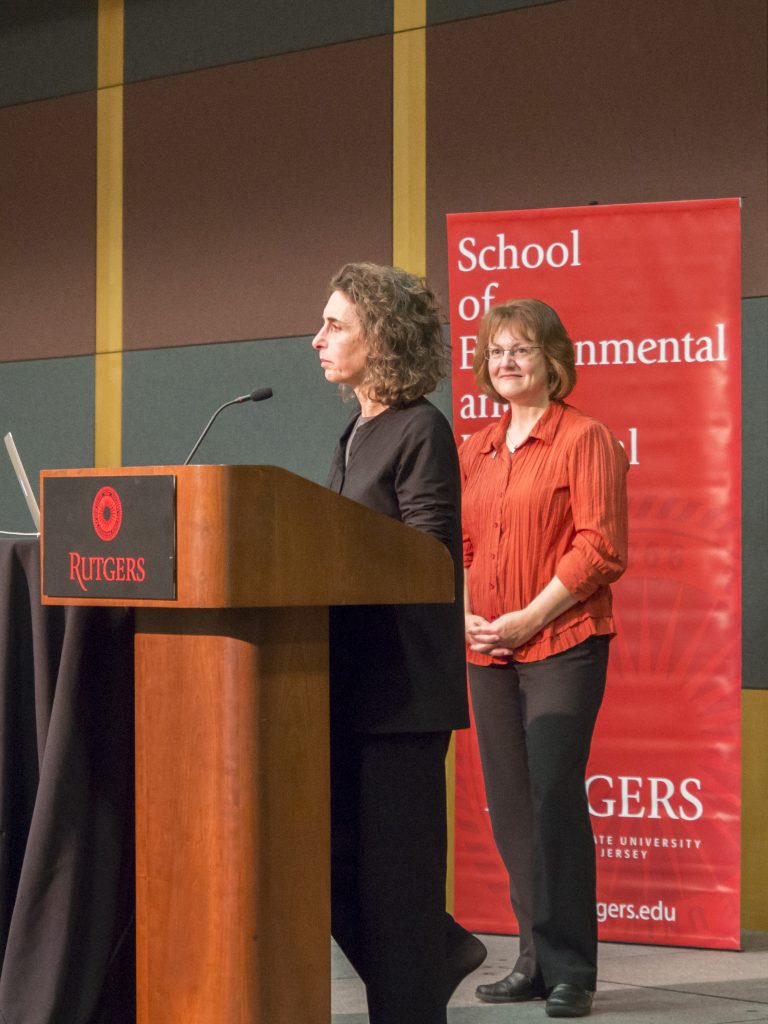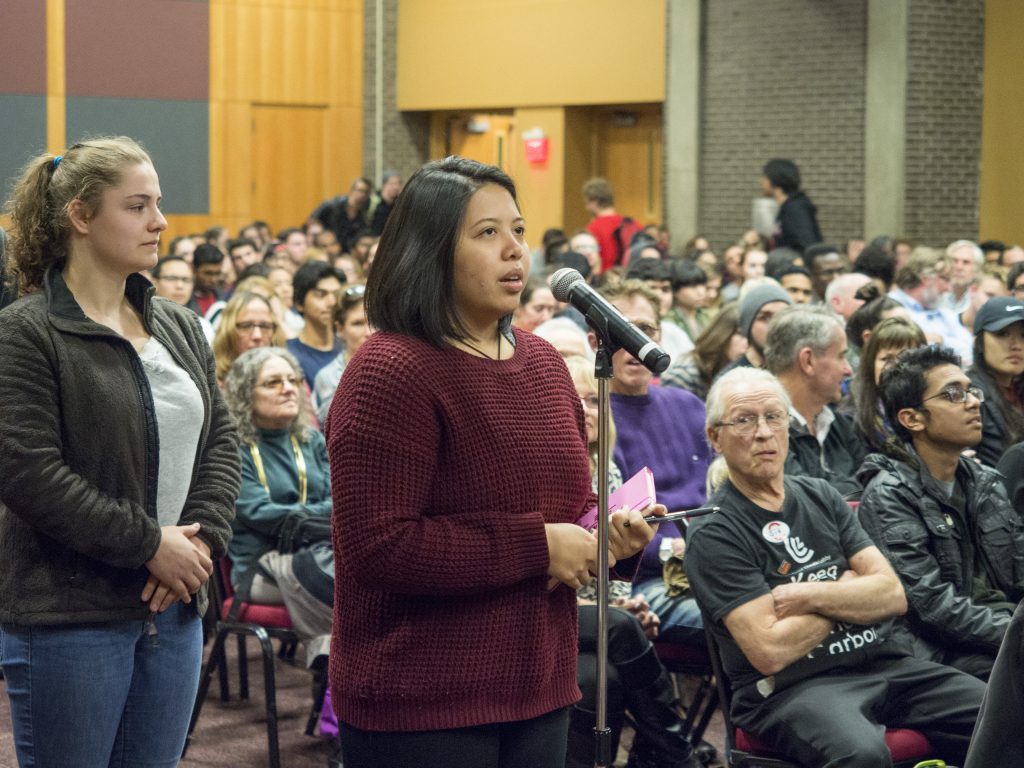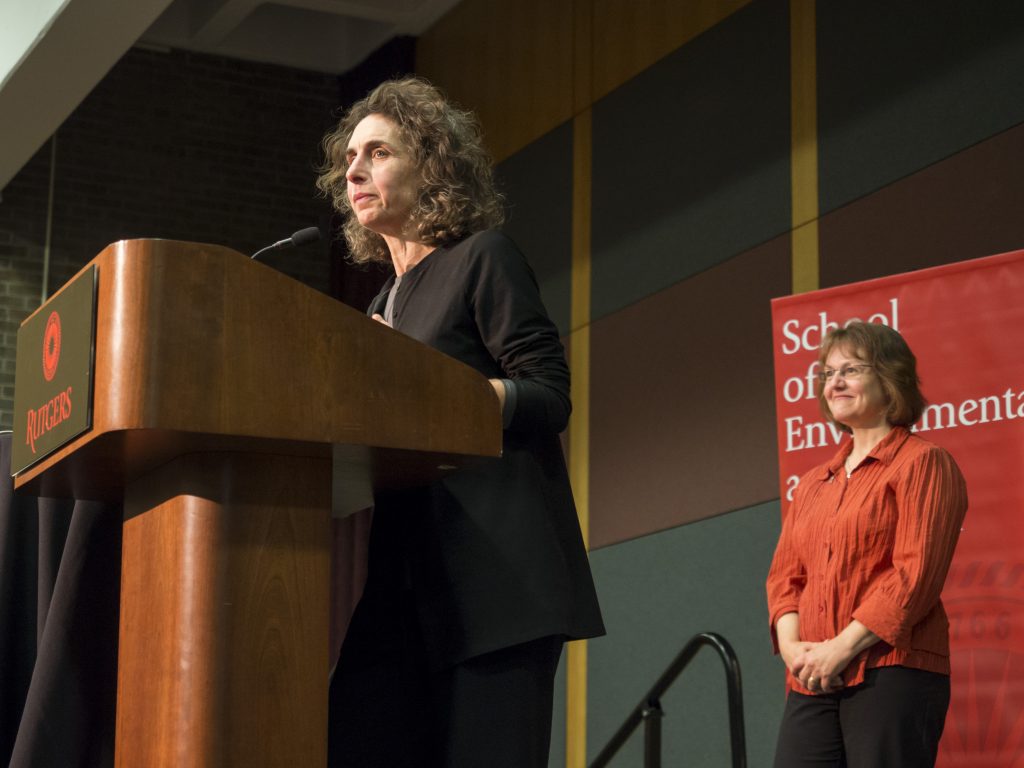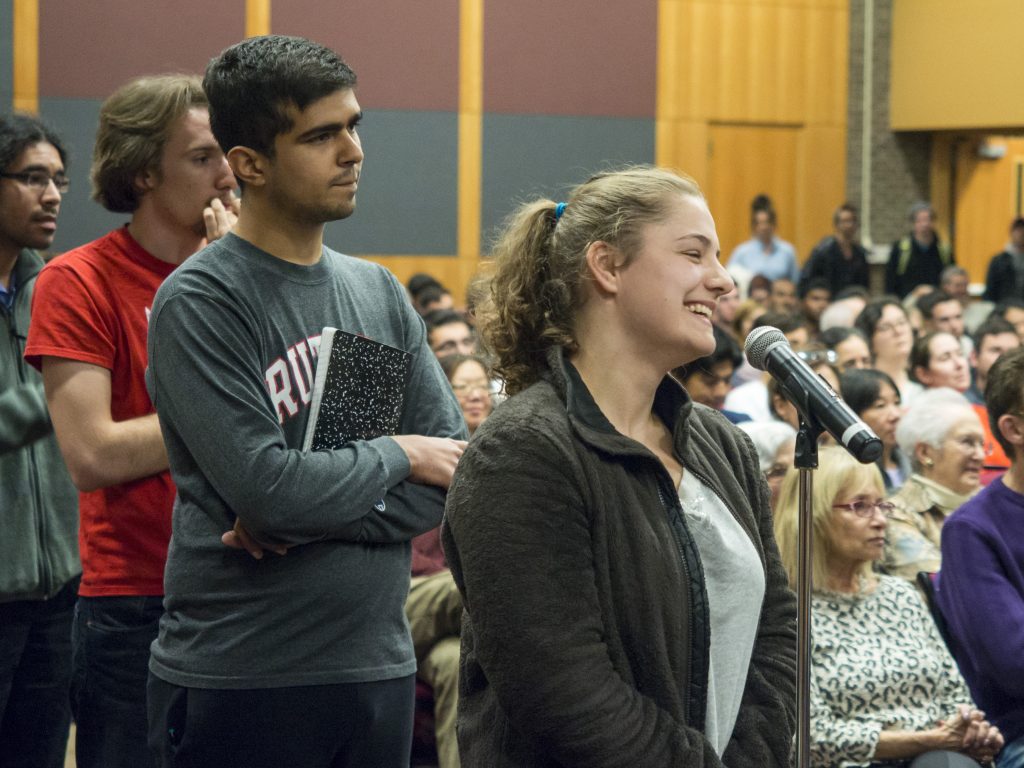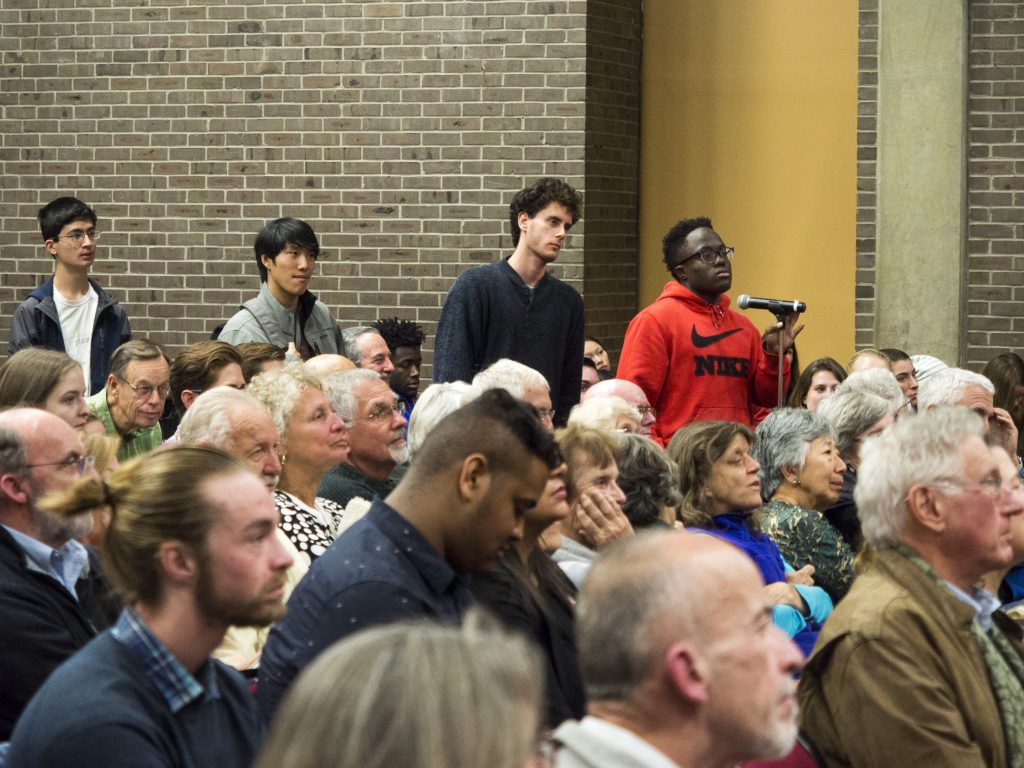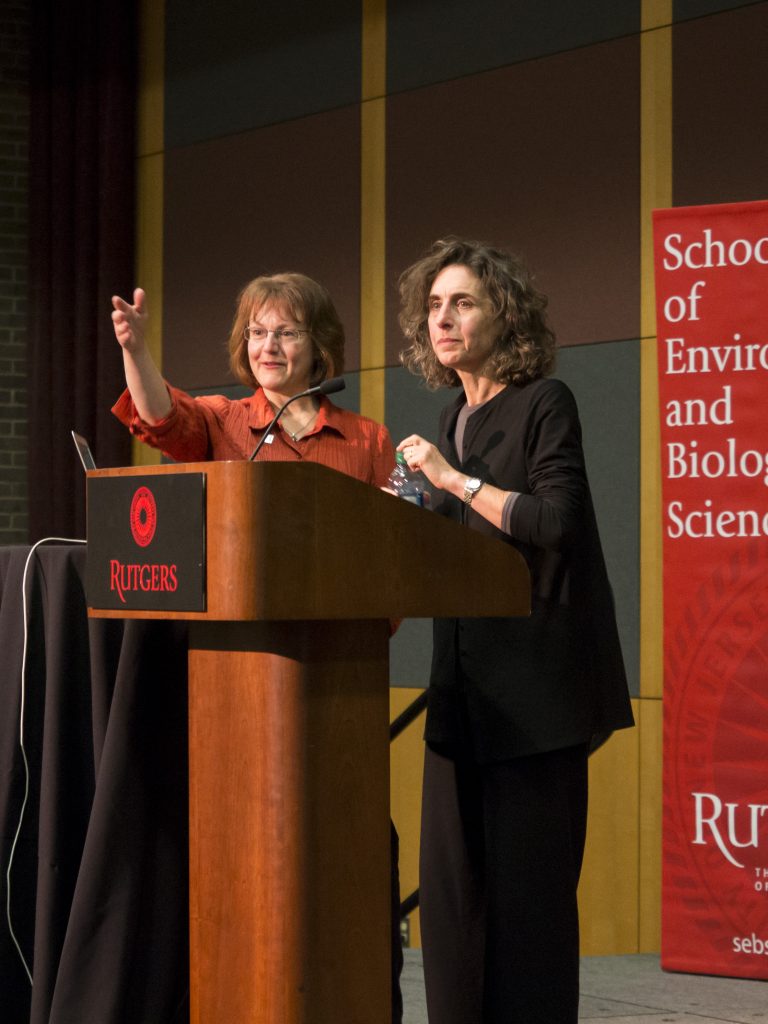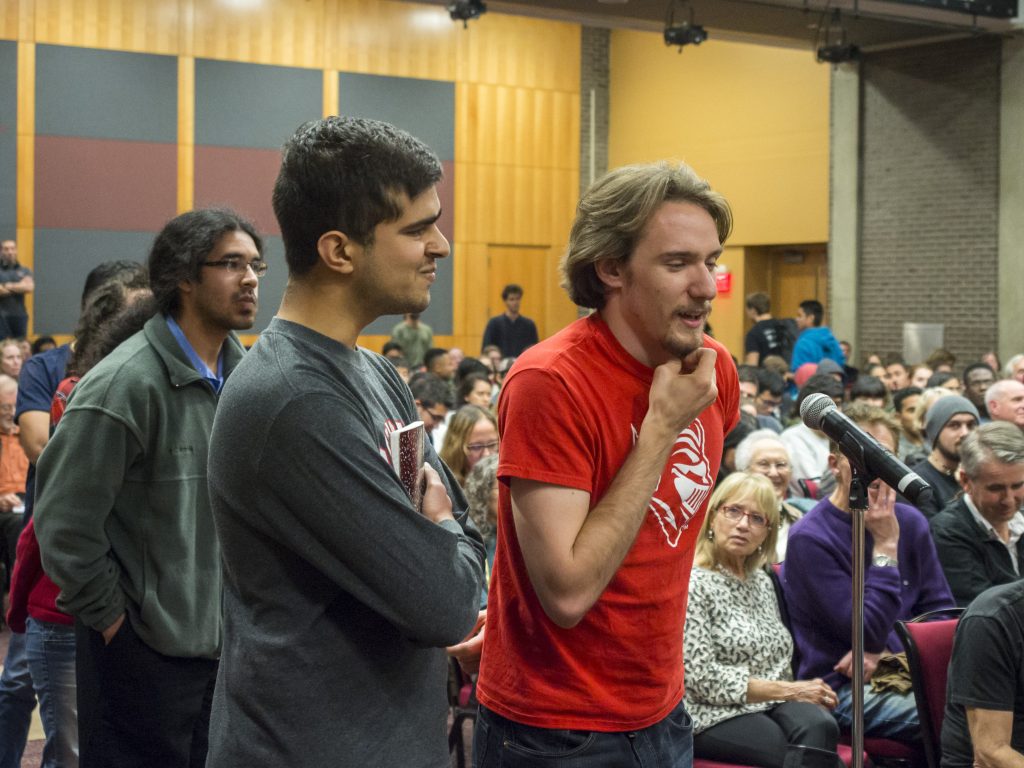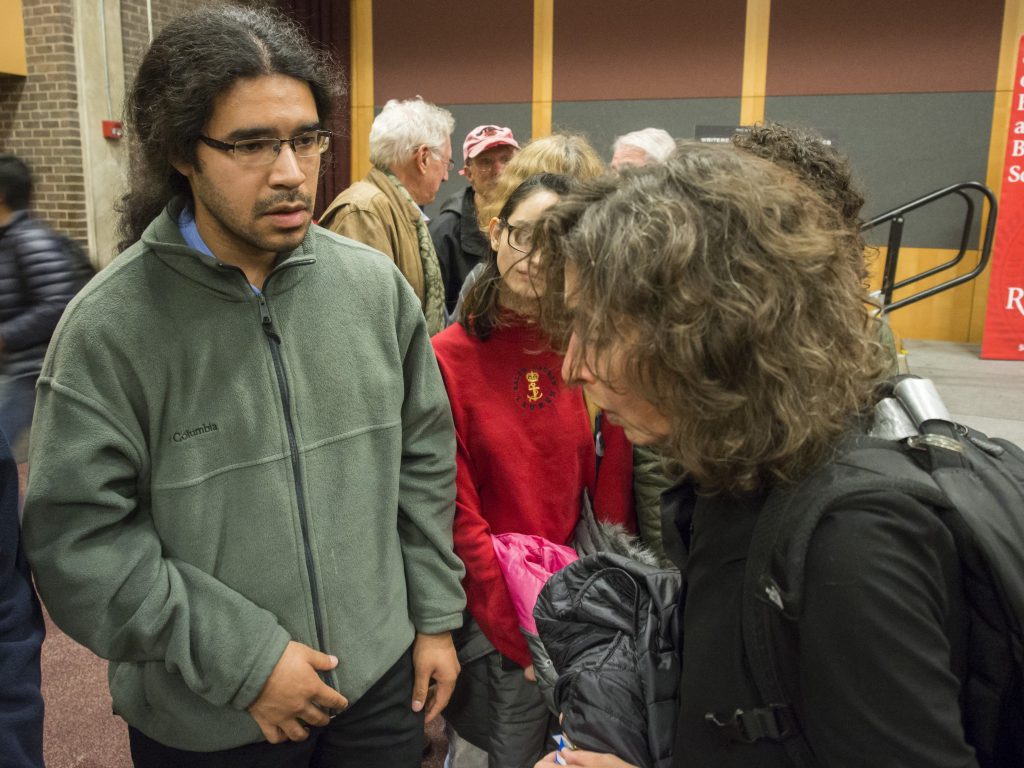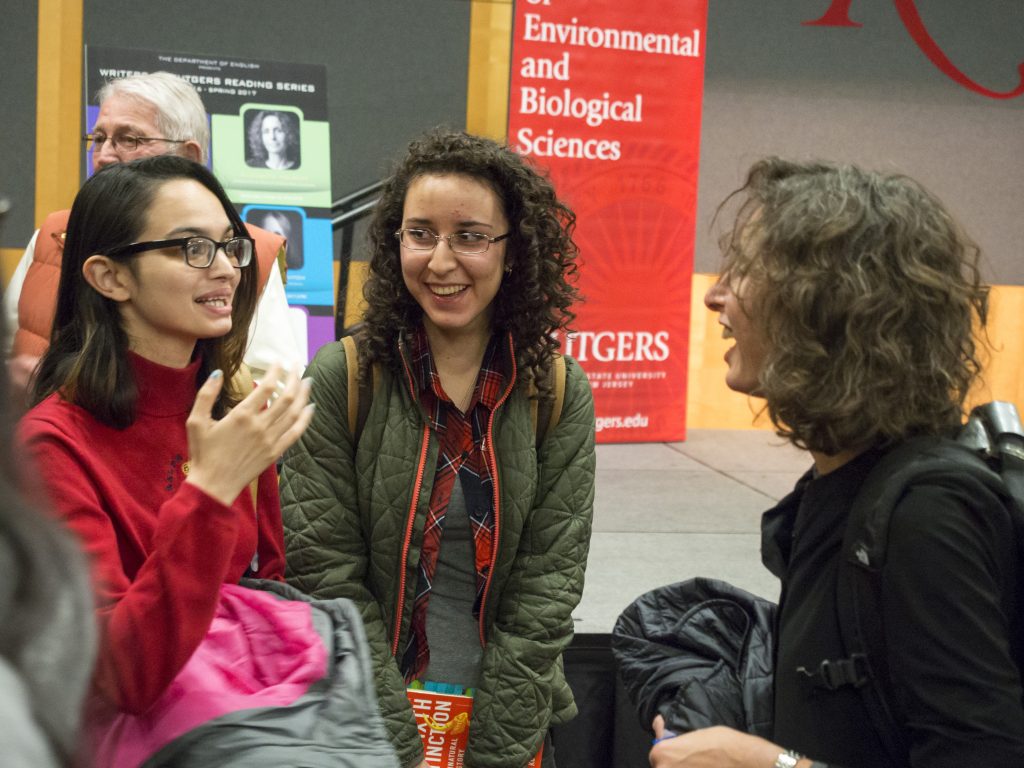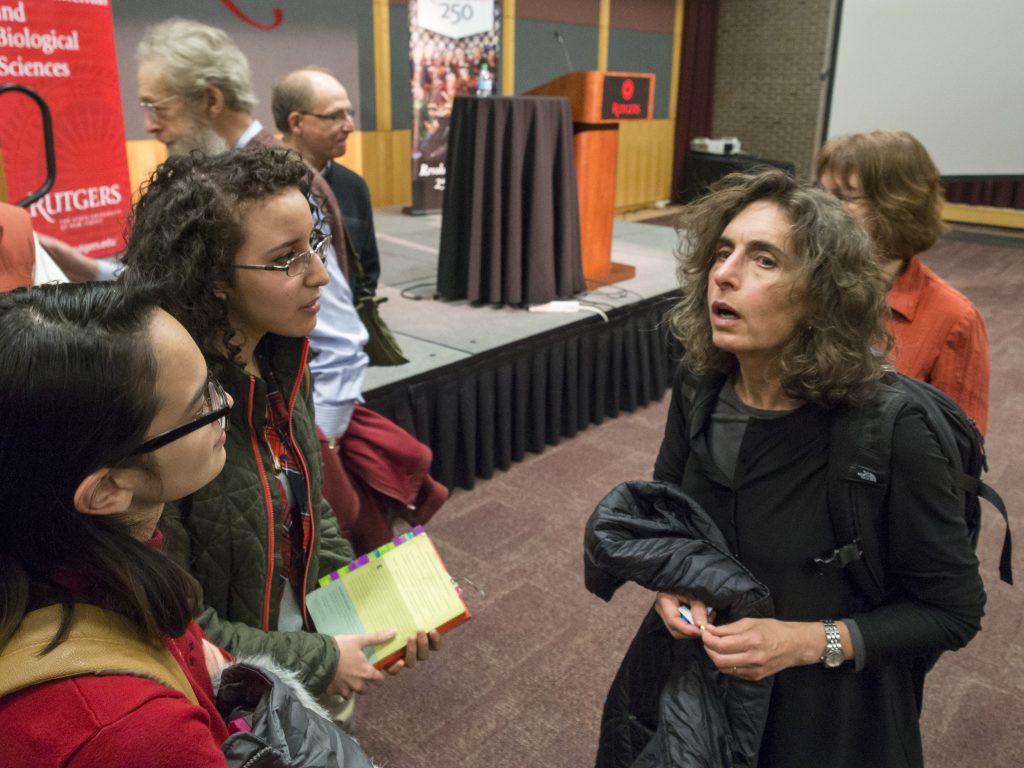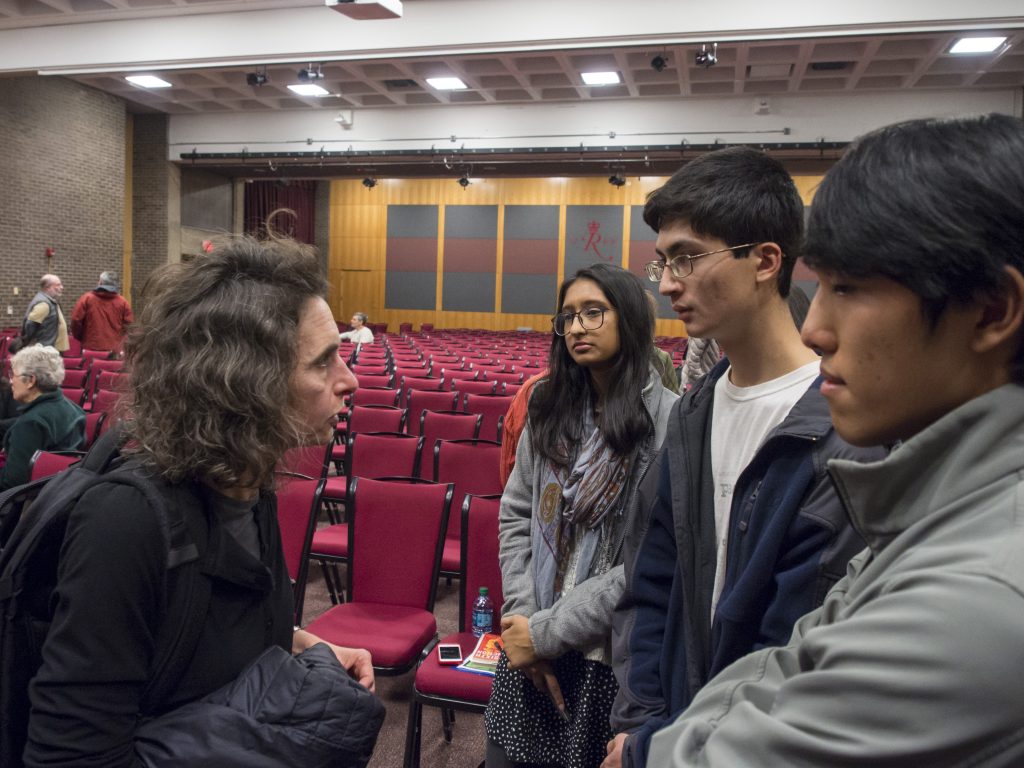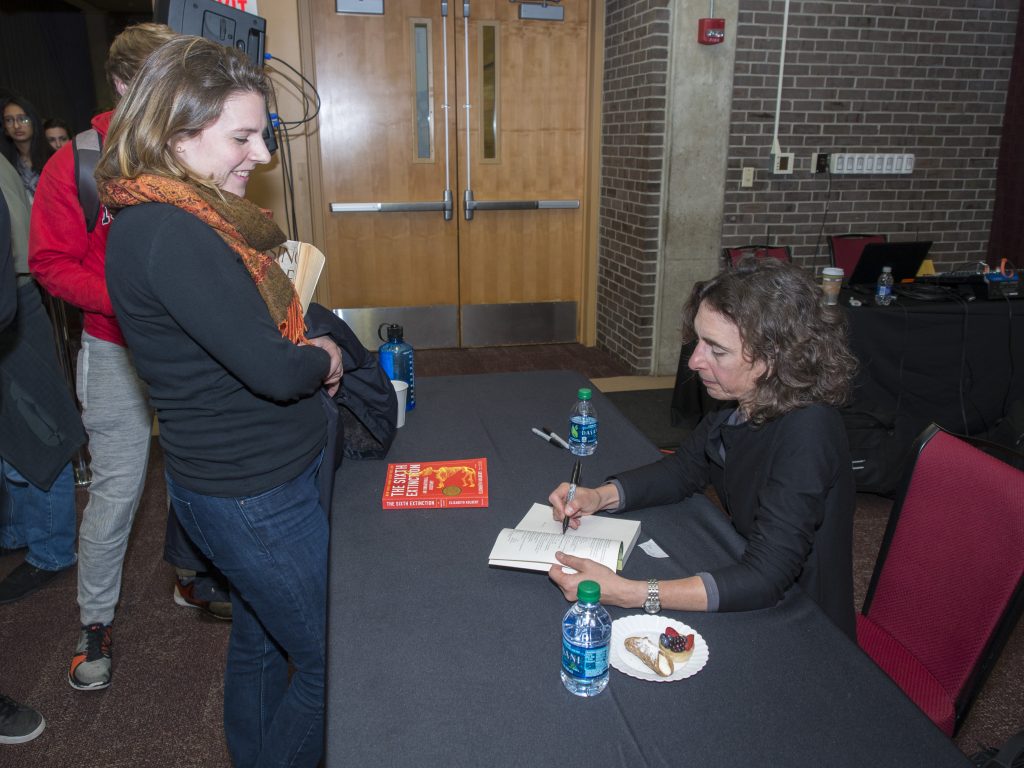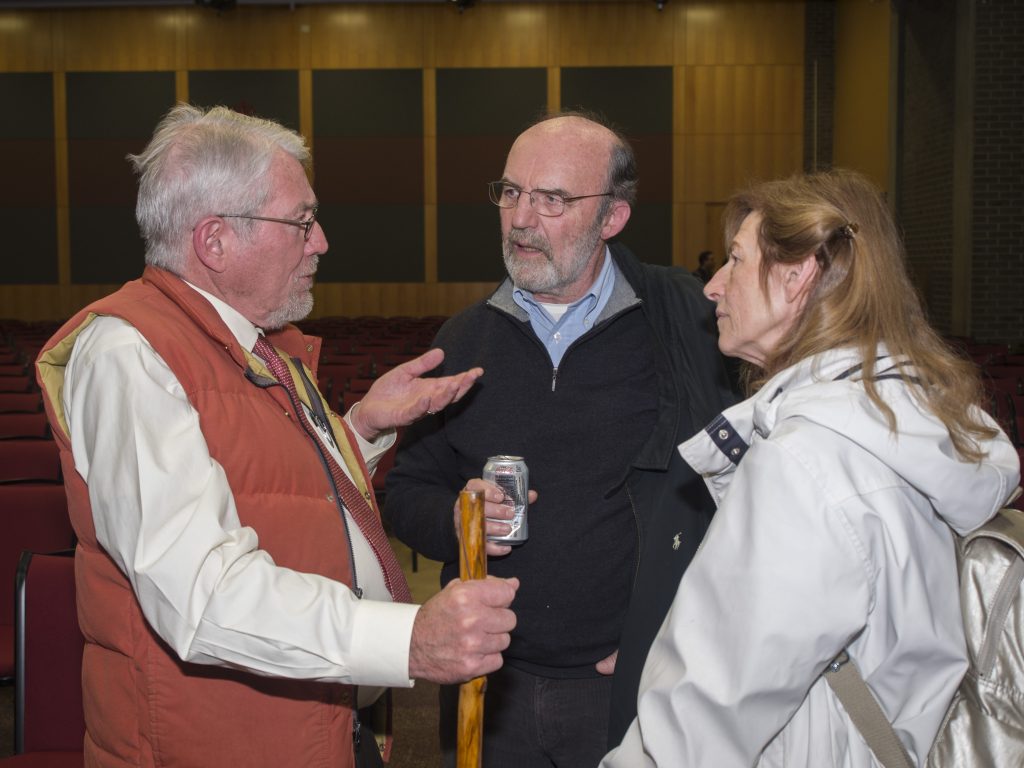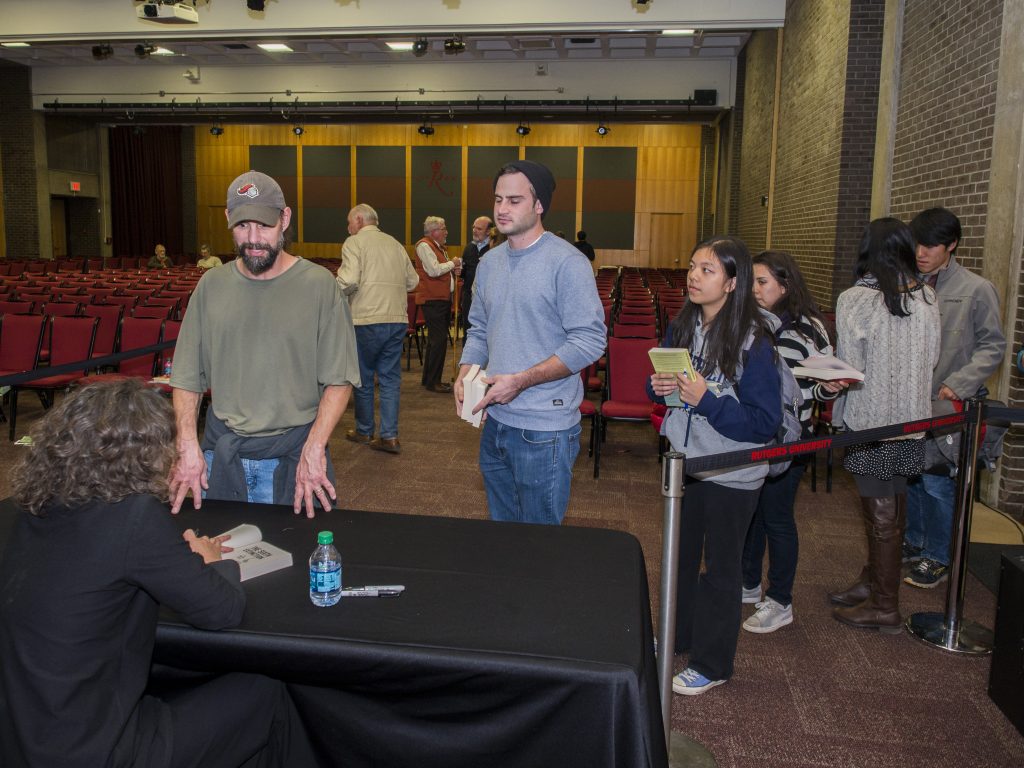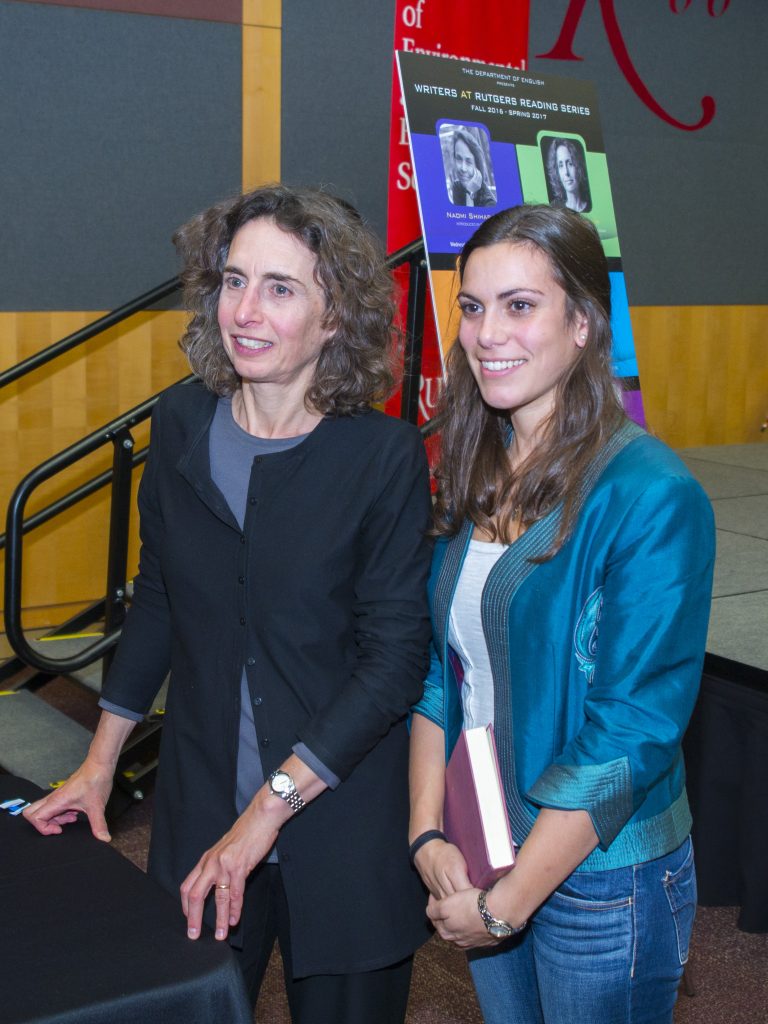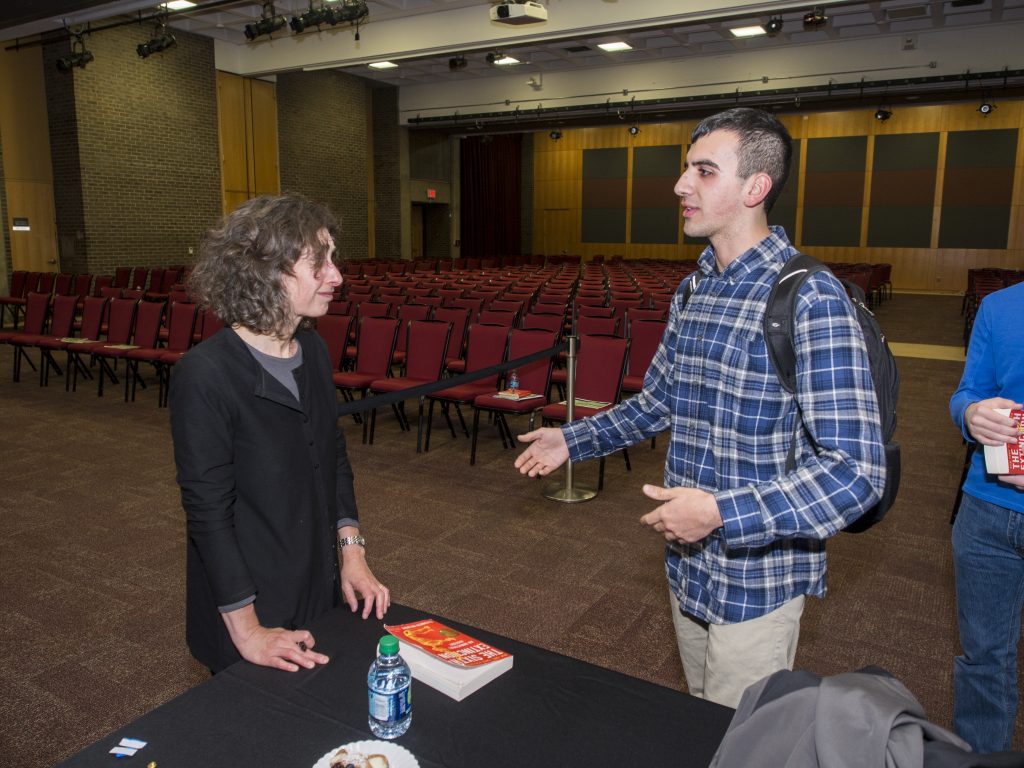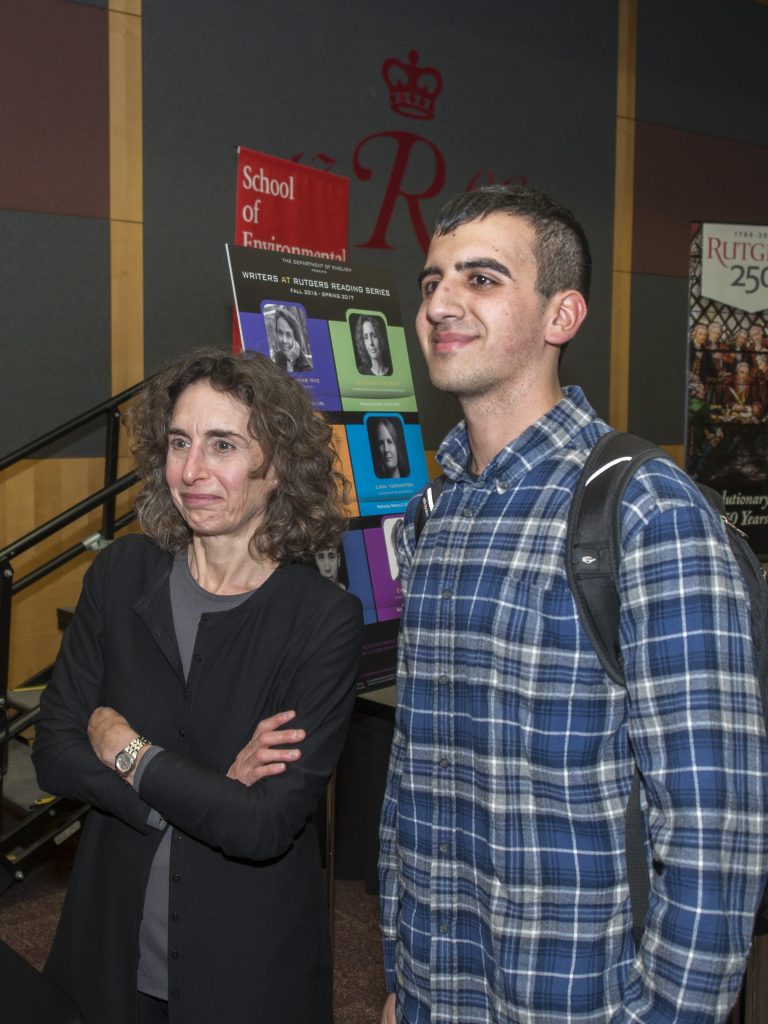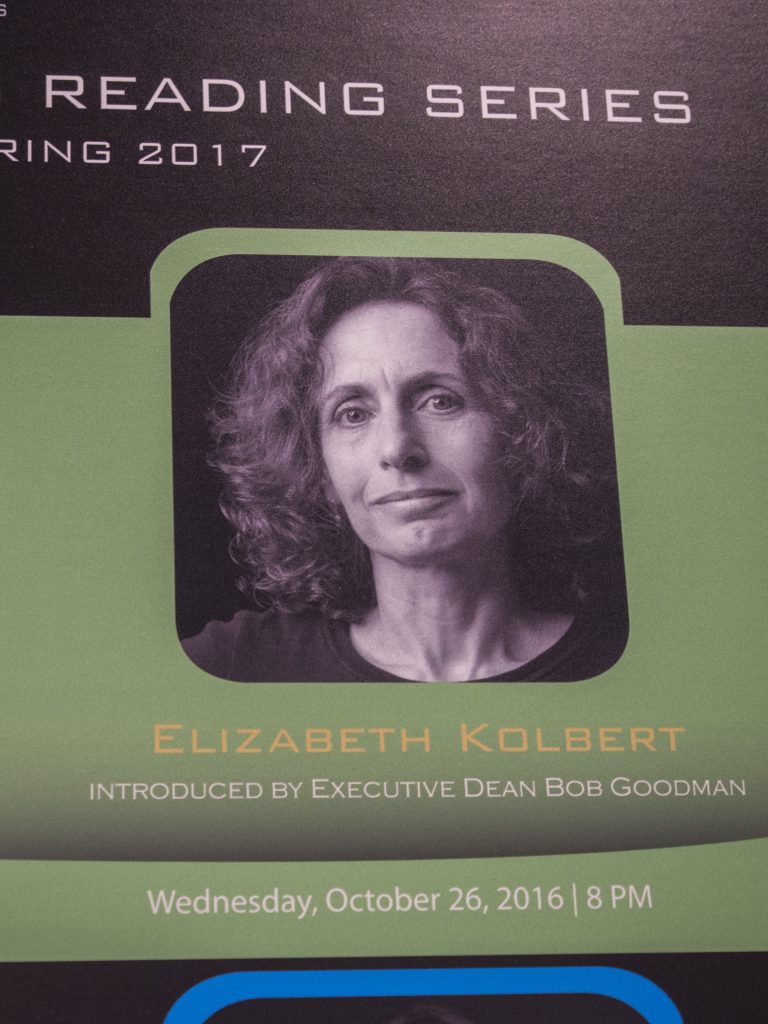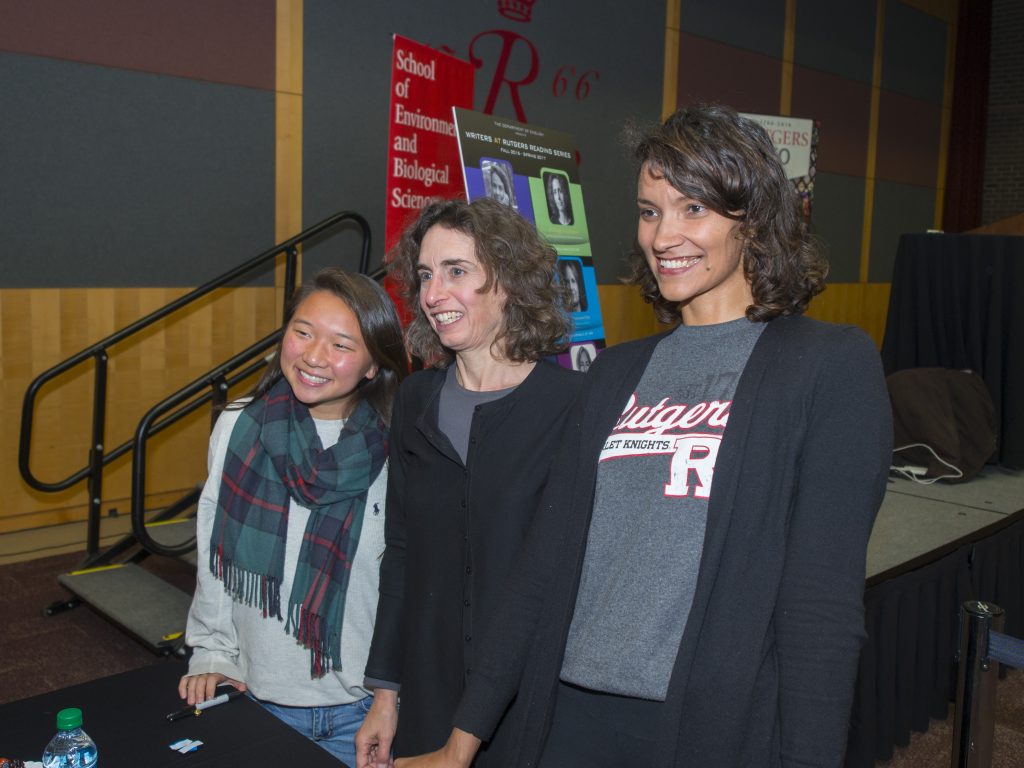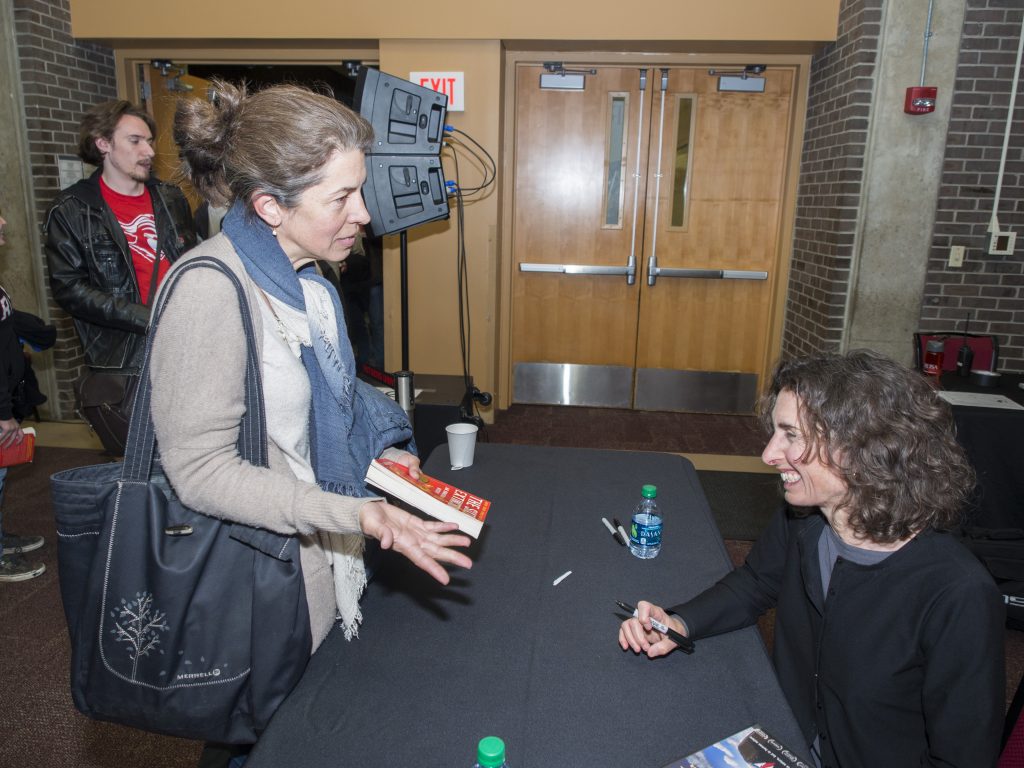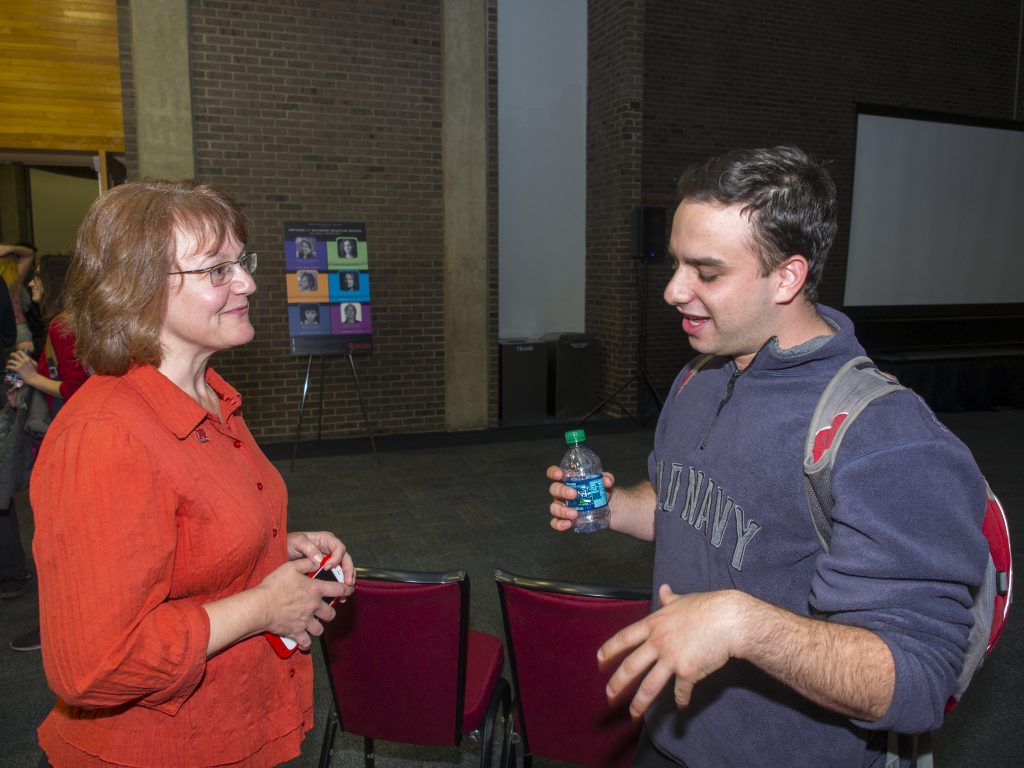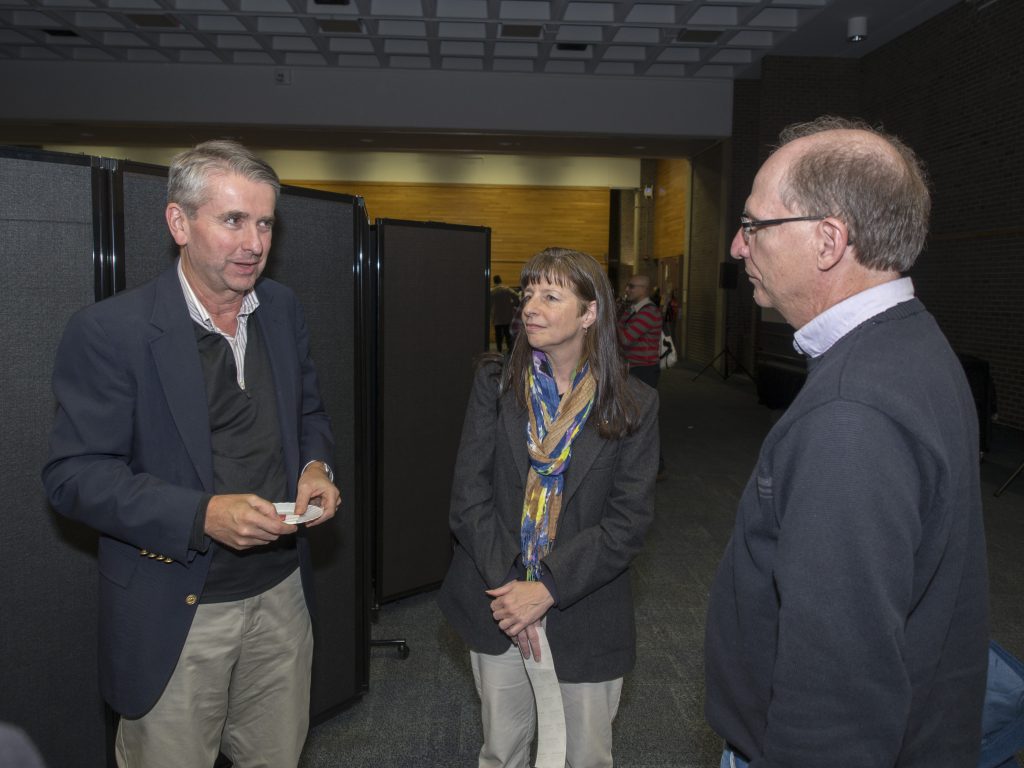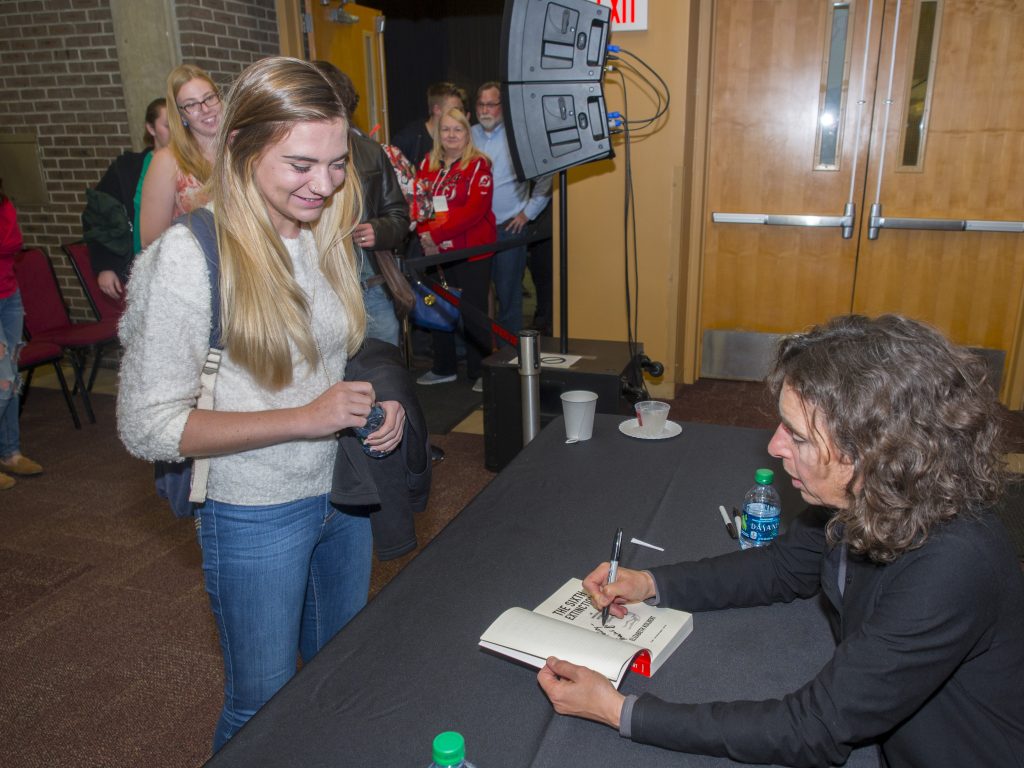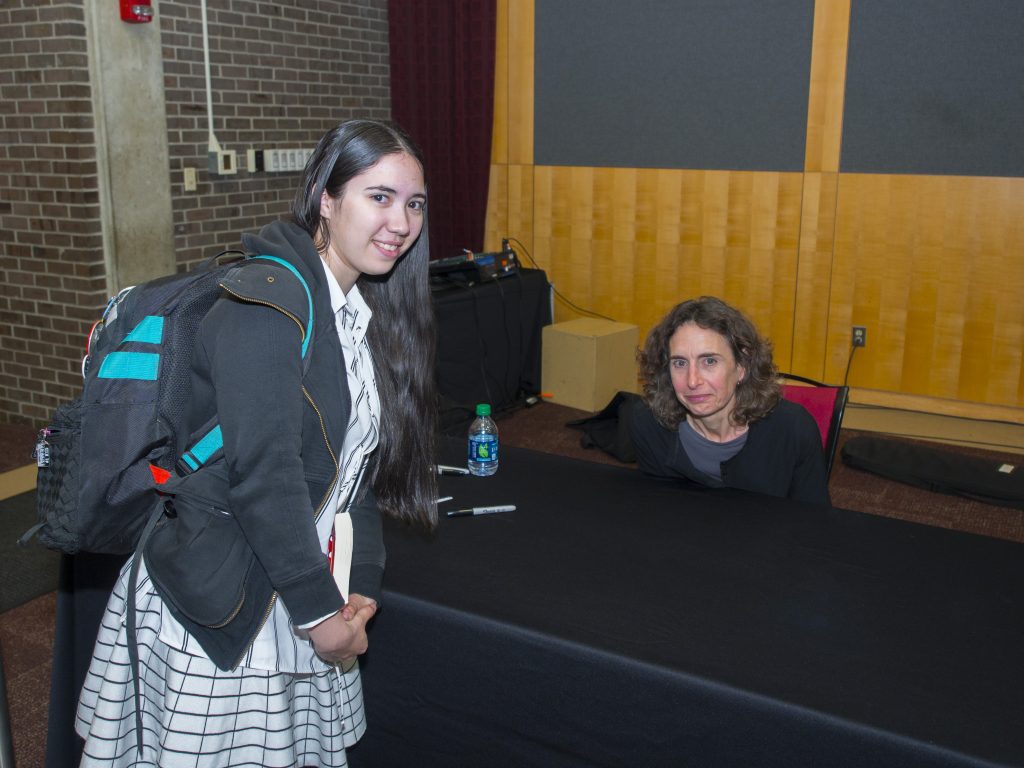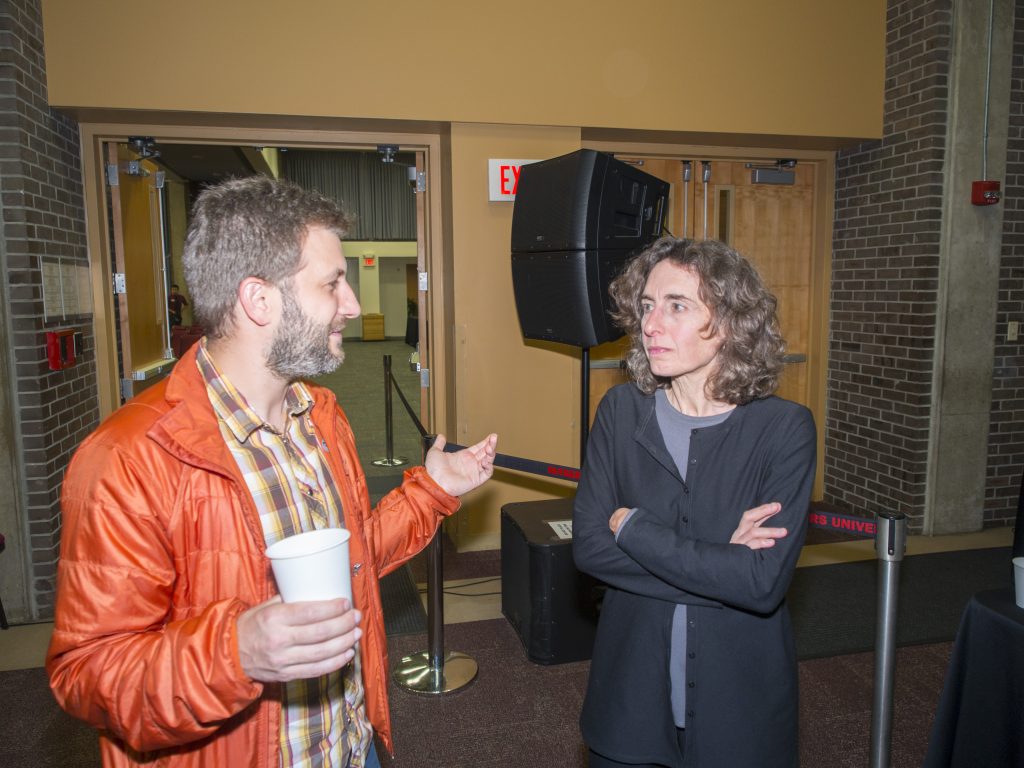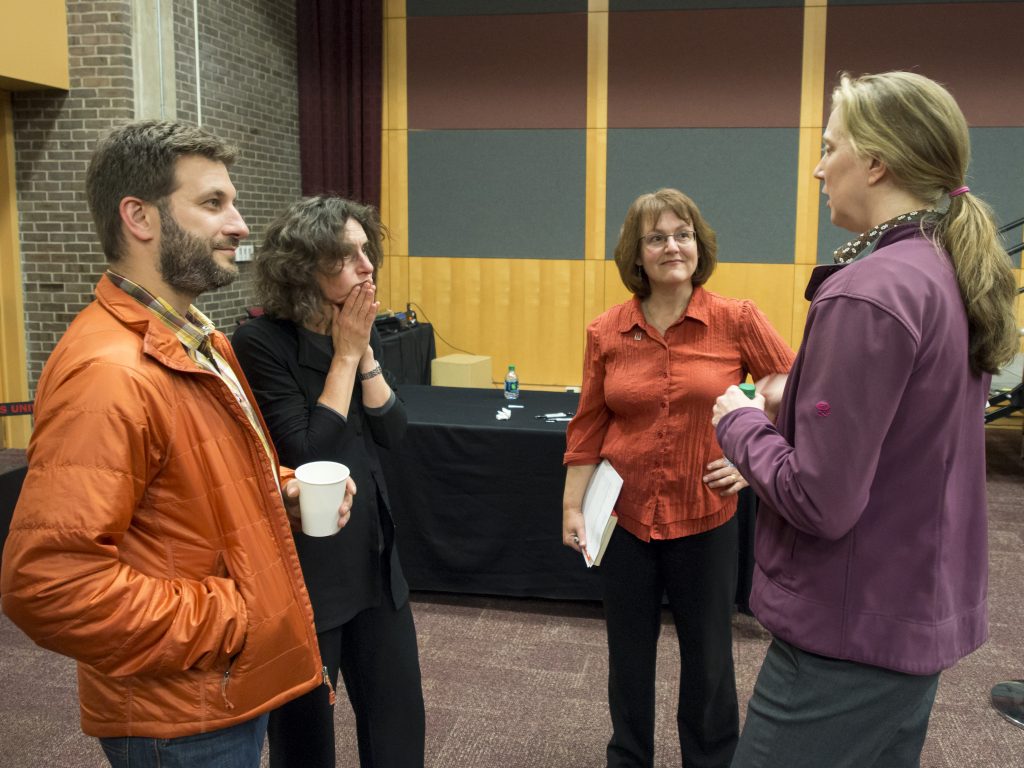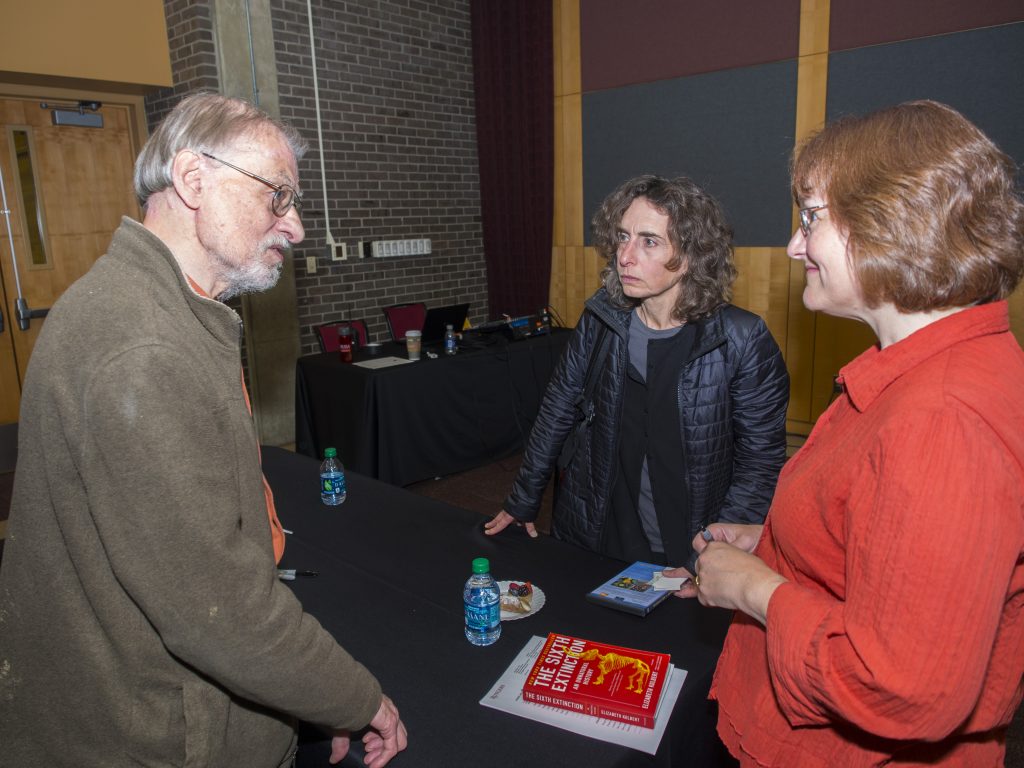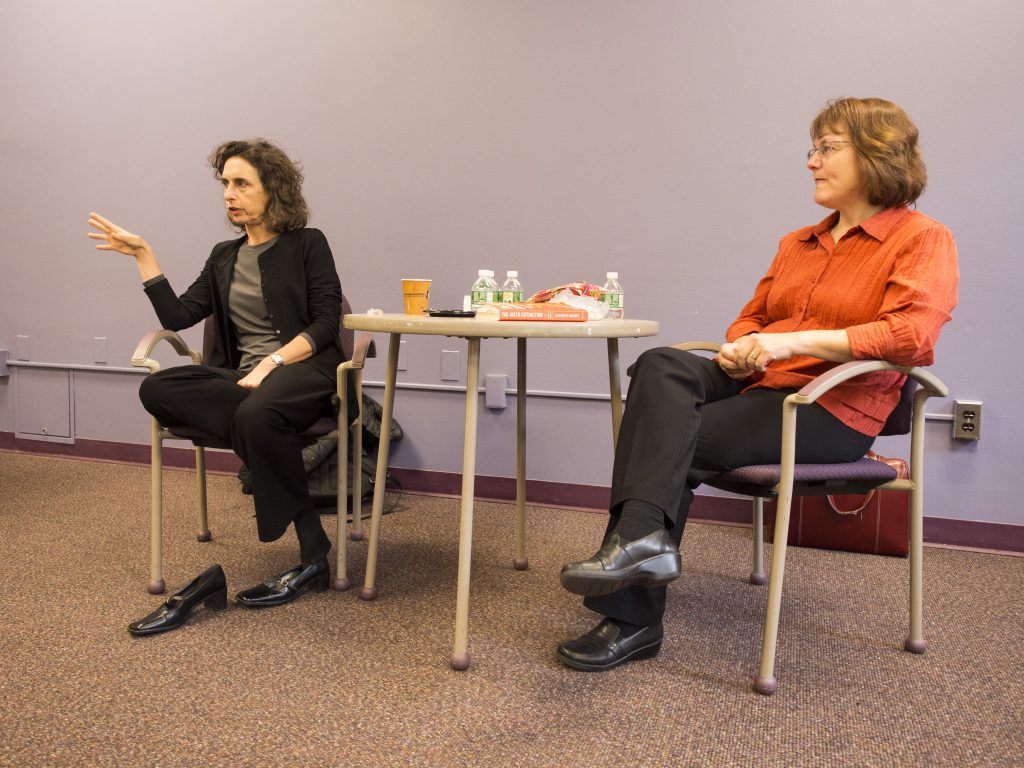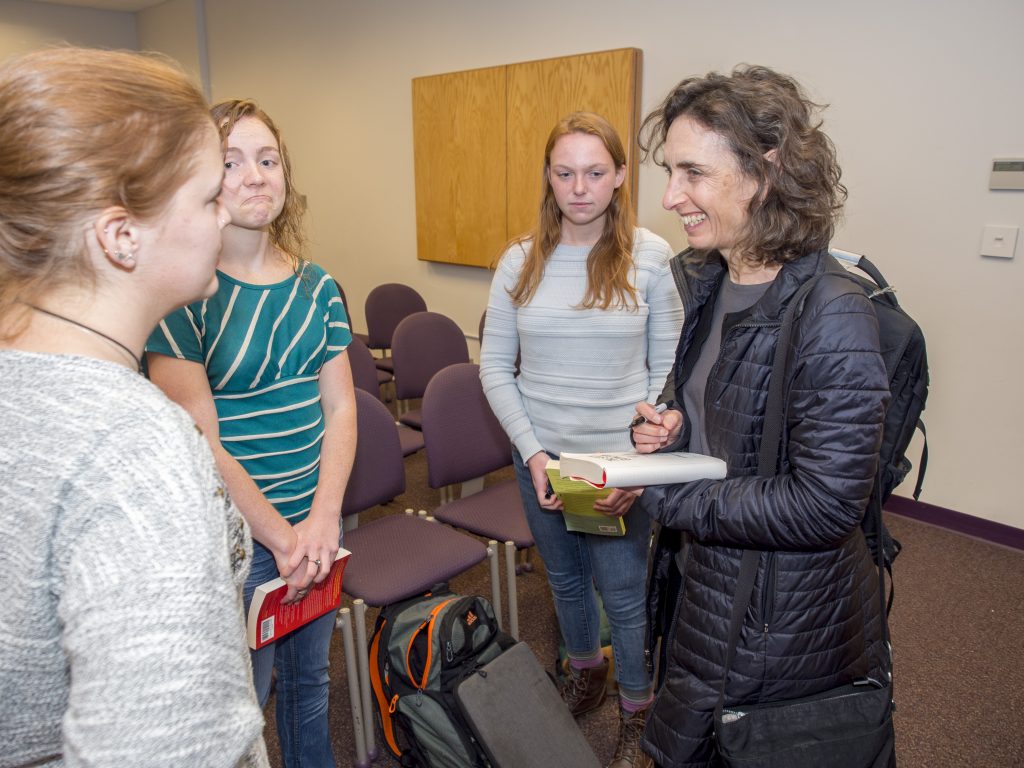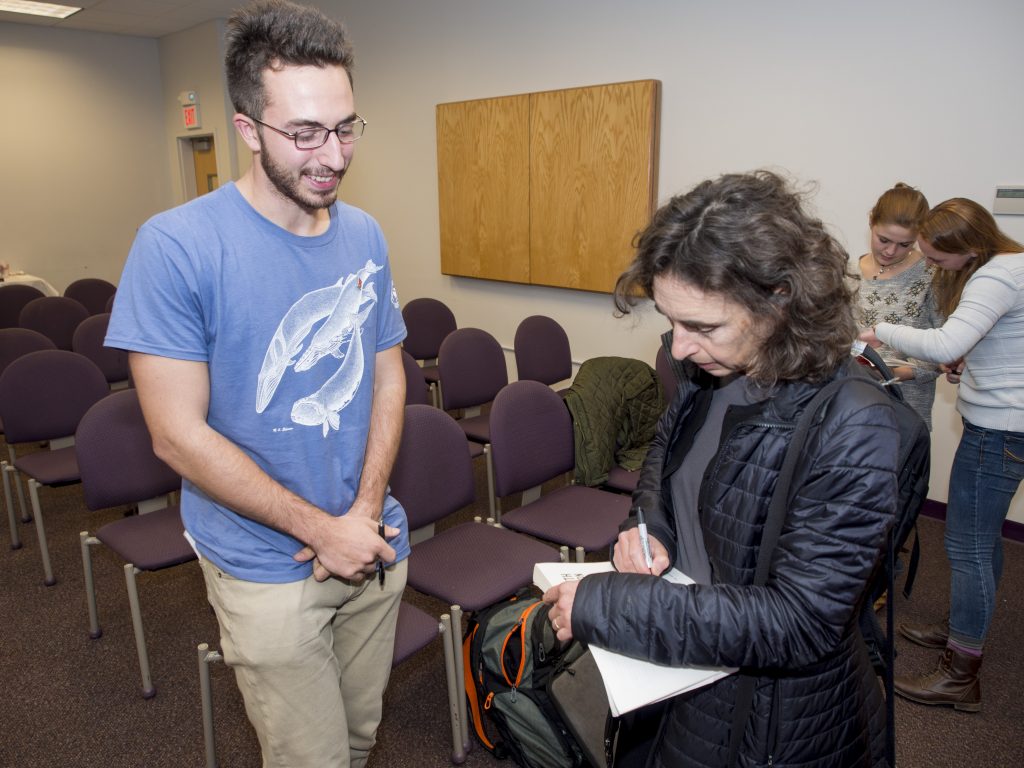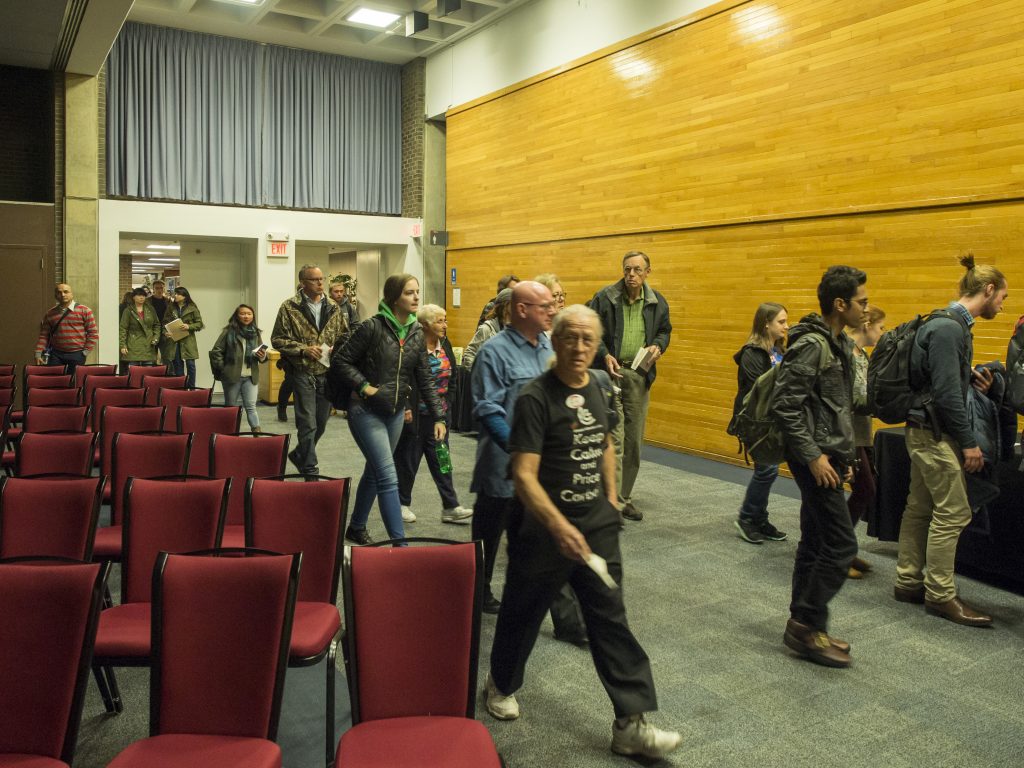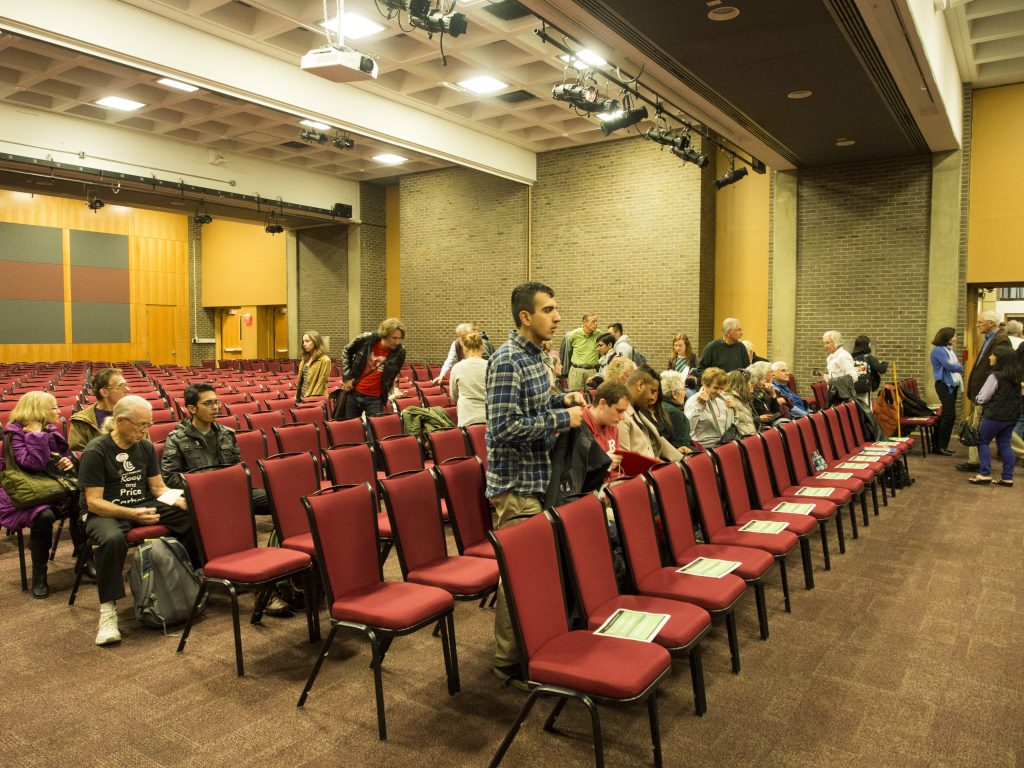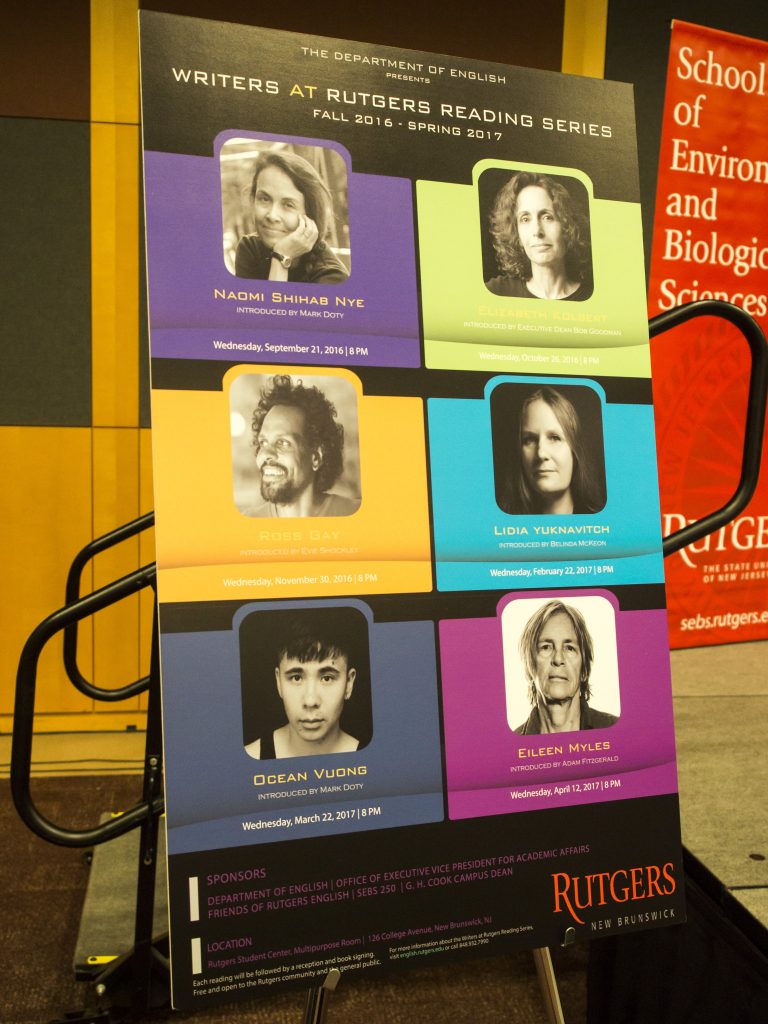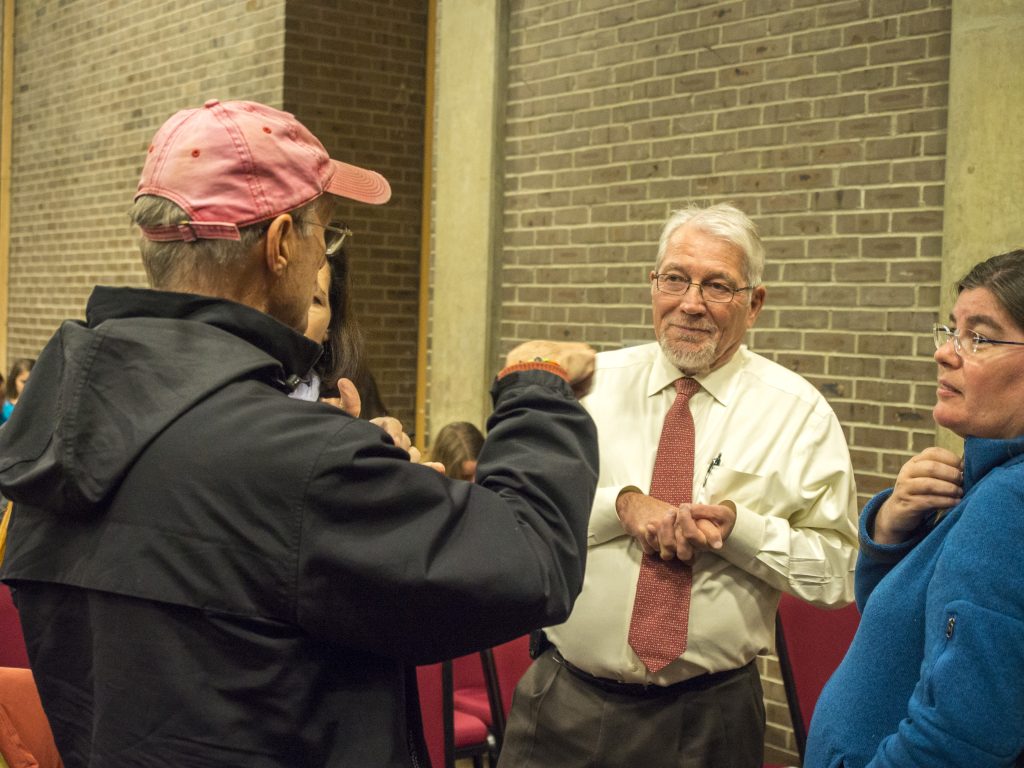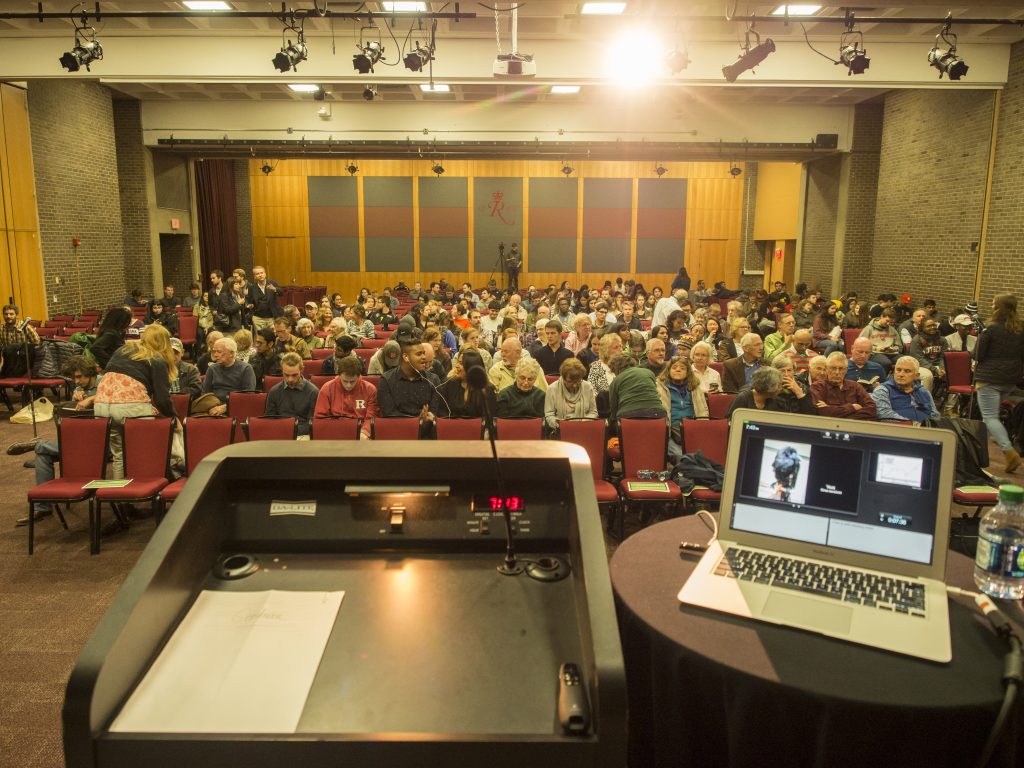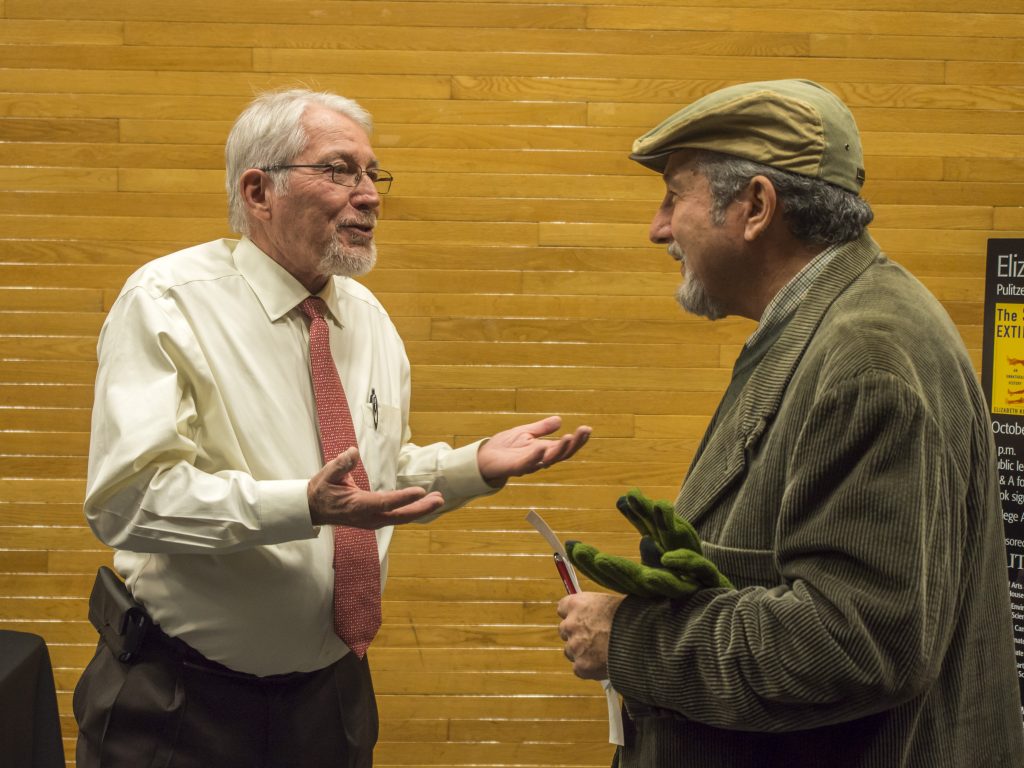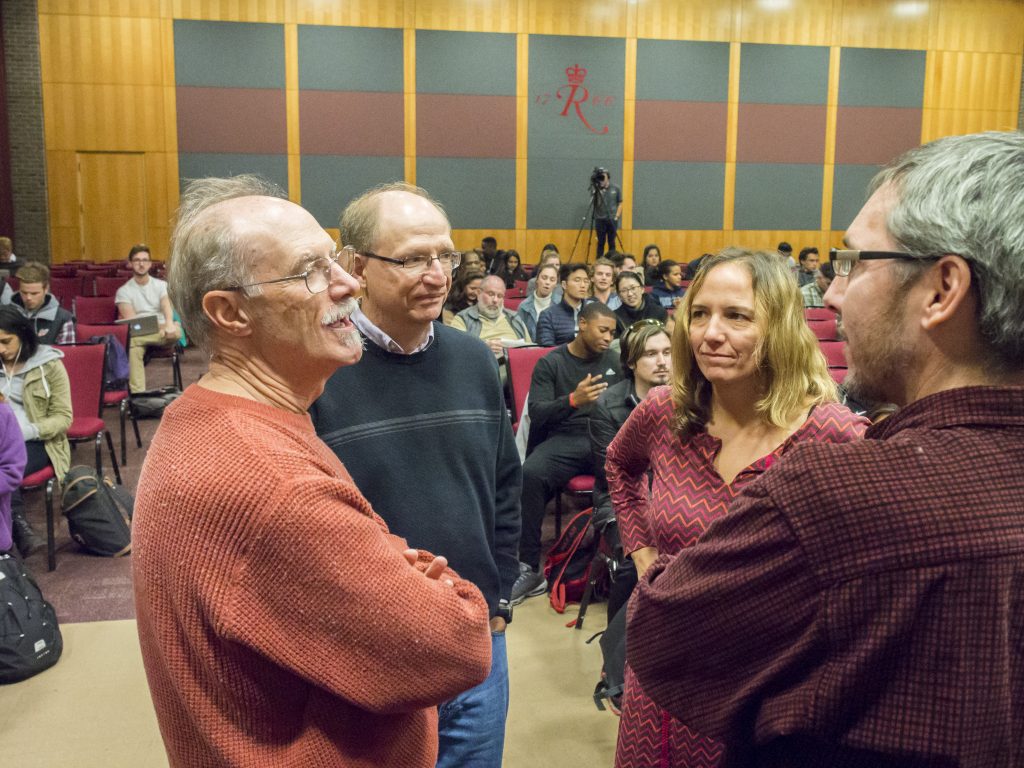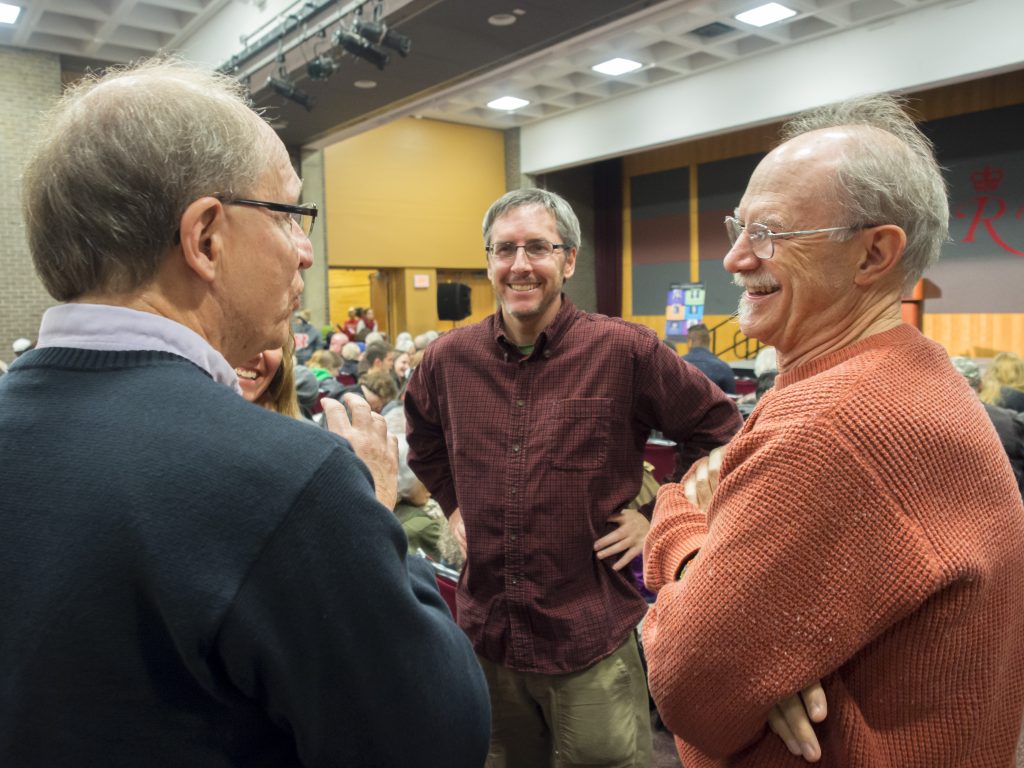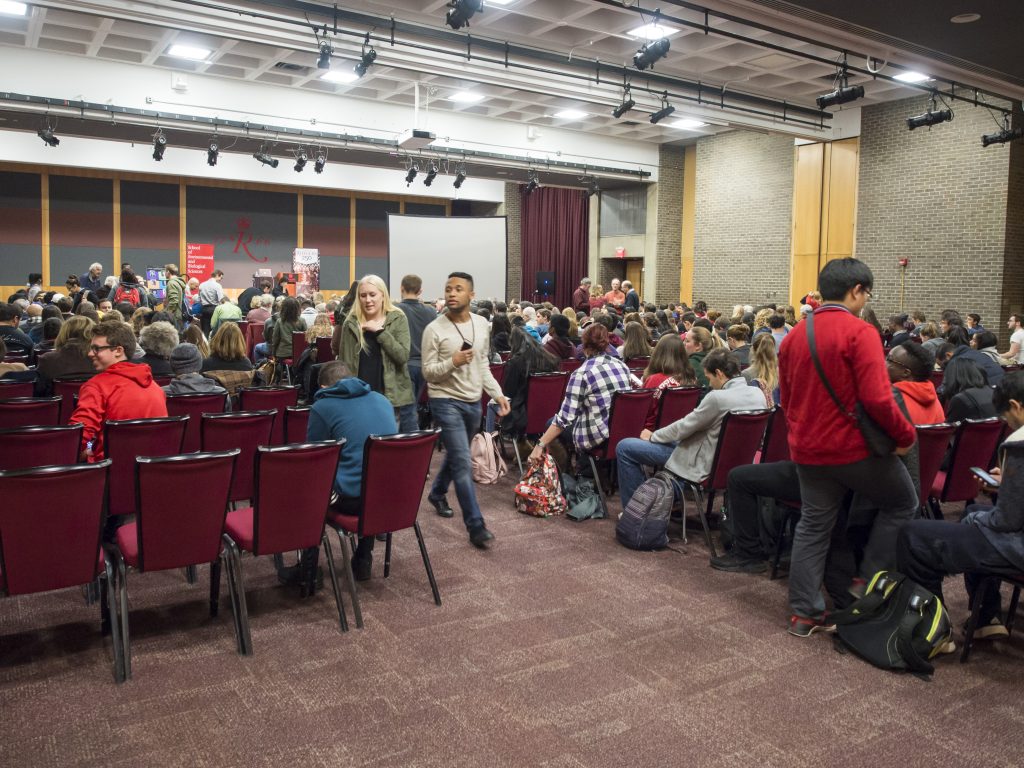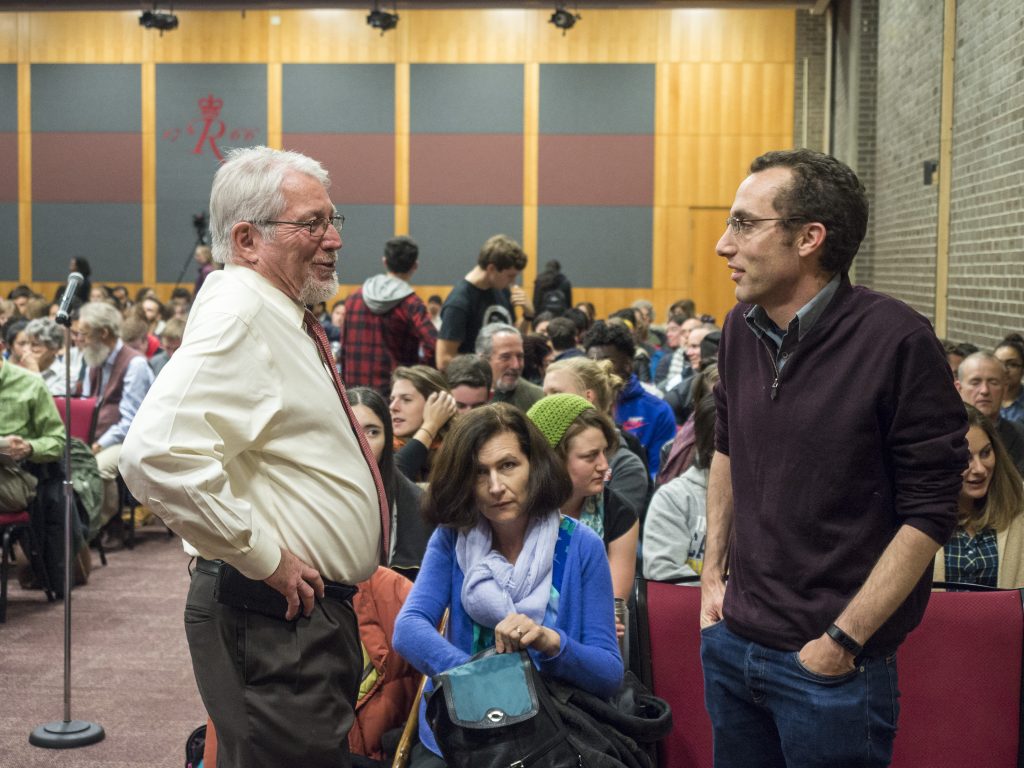The Sixth Extinction
On October 26, 2016, Rutgers University welcomed Pulitzer Prize winning author, Elizabeth Kollbert who spoke on "The Sixth Extinction". This event was part of the series, "Exploring the Anthropocene: The Age of Us" as part of the School of Environmental and Biological Sciences (SEBS) celebration of Rutgers 250th Anniversary. In addition to SEBS, this event was co-sponsored by Writers House, Rutgers Climate Institute, Undergraduate Academic Affairs, Institute of Earth, Ocean and Atmospheric Sciences and RU250.
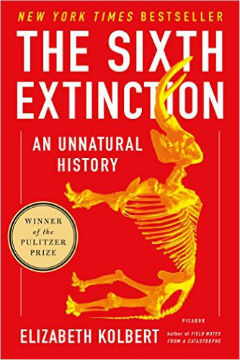
About the Author:
Elizabeth Kolbert traveled from Alaska to Greenland, and visited top scientists, to get to the heart of the debate over global warming. Growing out of a groundbreaking three-part series in The New Yorker (which won the 2006 National Magazine Award in the category Public Interest), Field Notes from a Catastrophe: Man, Nature, and Climate Change brings the environment into the consciousness of the American people and asks what, if anything, can be done, and how we can save our planet. She explains the science and the studies, draws frightening parallels to lost ancient civilizations, unpacks the politics, and presents the personal tales of those who are being affected most—the people who make their homes near the poles and, in an eerie foreshadowing, are watching their worlds disappear. Field Notes from a Catastrophe: Man, Nature, and Climate Change was chosen as one of the 100 Notable Books of the Year (2006) by The New York Times Book Review. Her most recent book, The Sixth Extinction: An Unnatural History, a book about mass extinctions that weaves intellectual and natural history with reporting in the field, was a New York Times 2014 Top Ten Best Book of the Year. The Sixth Extinction also won the 2015 Pulitzer Prize in the General Nonfiction category and was a finalist for the National Book Critics Circle awards for the best books of 2014. As with Field Notes from a Catastrophe, The Sixth Extinction began as an article in The New Yorker.
Elizabeth Kolbert has been a staff writer for The New Yorker since 1999. She has written dozens of pieces for the magazine, including profiles of Senator Hillary Clinton, Mayor Michael Bloomberg, and former Mayor Rudolph Giuliani. Her series on global warming, "The Climate of Man," appeared in The New Yorker in the spring of 2005 and won the American Association for the Advancement of Science's magazine award. Also in 2006, she received the National Academy of Sciences Communication Award in the newspaper/magazine category and was awarded a Lannan Writing Fellowship. In September 2010, Kolbert received the prestigious Heinz Award which recognizes individuals who are addressing global change caused by the impact of human activities and natural processes on the environment. She also won a 2010 National Magazine Award in the Reviews and Criticism category for her work in The New Yorker and the Sierra Club's 2011 David R. Brower Award. She recently won the Walter Sullivan Award for Excellence in Science Journalism from the American Geophysical Union.
Elizabeth Kolbert's stories have also appeared in The New York Times Magazine, Vogue, and Mother Jones, and have been anthologized in The Best American Science and Nature Writing and The Best American Political Writing. She edited The Best American Science and Nature Writing 2009. A collection of her work, The Prophet of Love and Other Tales of Power and Deceit, was published in 2004. Prior to joining the staff of The New Yorker, Kolbert was a political reporter for The New York Times.
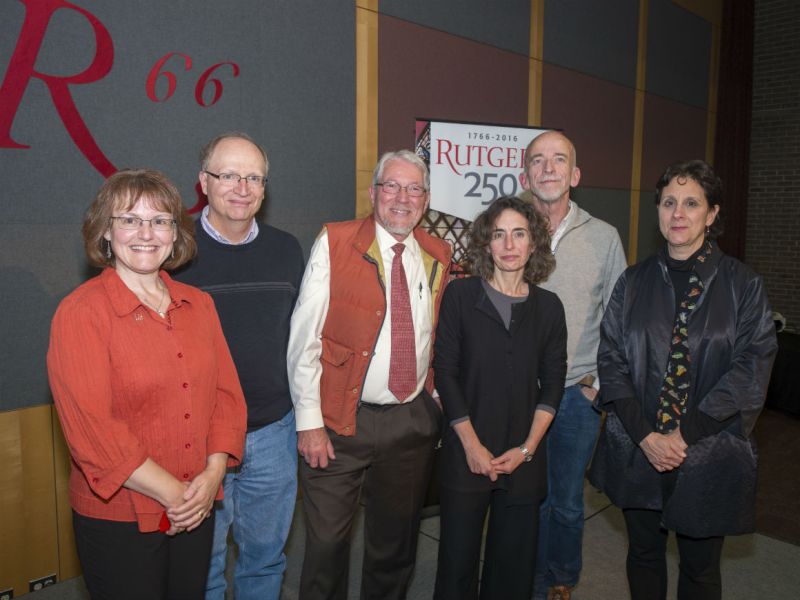
Pictured from Left to Right are Xenia Morin (Plant Biology and Pathology), Tony Broccoli (Rutgers Climate Institute), Executive Dean Robert Goodman (School of Environmental and Biological Sciences), Elizabeth Kolbert, Mark Doty (Writers House) and Marjorie Kaplan (Rutgers Climate Institute).




